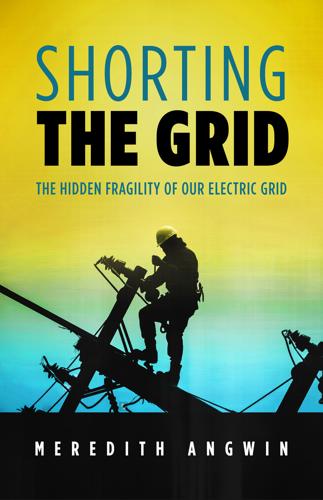
Shorting the Grid: The Hidden Fragility of Our Electric Grid
by
Meredith. Angwin
Published 18 Oct 2020
The ISO-NE report concluded that Mystic’s possible closure would cause 20 to 50 hours of “load shedding” (meaning rolling blackouts) and hundreds of hours of grid operation under emergency protocols. When Exelon made its closure announcement, ISO-NE realized that the danger of rolling blackouts was suddenly more immediate than 2024. It now hopes to provide “out-of-market-cost recovery” — subsidies — to persuade Exelon to keep the Mystic plants operating. If ISO-NE gets permission for the subsidies from the Federal Energy Regulatory Commission, some of the threat of blackouts will retreat a few years into the future. Ominously, 19 of the 23 ISO-NE scenarios led to rolling blackouts. The one “no-problem” scenario (no load shedding, no emergency procedures) is one where everything goes right.
…
The study, “Operational Fuel-Security Analysis,” was published on January 17, 2018.69 ISO-NE initially ran 23 scenarios for the future of the grid. In 19 of the scenarios, the grid would have rolling blackouts by the winter of 2026. There was only one scenario where the grid had a solid, no-emergency operation. That no-problem scenario had very optimistic assumptions and included increased deliveries of LNG (liquified natural gas). The future comes closer IN THE FUEL-SECURITY STUDY, ISO-NE modeled the temporary closure of a major gas-fired plant, Mystic Station. This temporary closure would lead to rolling blackouts. The time-frame that ISO-NE modeled was the winter of 2025–2026. In March 2018, Exelon, Mystic’s owner, announced it planned to close the plant permanently in 2022.70 I wrote about this, of course.
…
In March 2018, Exelon, Mystic’s owner, announced it planned to close the plant permanently in 2022.70 I wrote about this, of course. On May 19, 2018, the Valley News printed my opinion piece “Rolling blackouts are probably coming to New England sooner than expected.”71 The section below is an edited version of my article. **** When there’s not enough supply of electricity to meet demand, a grid operator cuts power to one section of the grid to keep the rest of the grid from failing. After a while, the operator restores the power to the blacked-out area and moves the blackout to another section. That is a “rolling blackout.” The New England grid operator, known as ISO-NE, recently completed a major study of various scenarios for the near-term future (2024–2025) of the grid, including the possibilities of rolling blackouts.
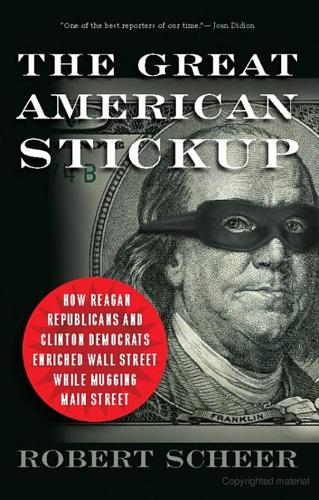
The Great American Stickup: How Reagan Republicans and Clinton Democrats Enriched Wall Street While Mugging Main Street
by
Robert Scheer
Published 14 Apr 2010
That provision of the 2000 law contained the aforementioned Enron loophole that permitted the company to go hog wild in expanding its online electricity trading operation, ultimately leading to increasingly manipulative trading practices that would infamously lead to humiliating, life-threatening, and economically damaging rolling blackouts for California. Robertson left the administration just weeks prior to the passage of the CFMA to become the top Washington lobbyist for Enron—a position she kept until the company declared bankruptcy at the end of 2001, a victim of its greed. Despite this blatantly apparent conflict of interest, in early summer 2009, Federal Reserve chair Ben Bernanke hired Robertson as a lobbyist as he sought to protect the Fed from congressional efforts to increase oversight of the secretive and monolithic central bank.
…
I knew I could count on you . . . Rich: No problem. I’m sure I’ll have a good time. All right, so I’ve got you covered for tomorrow. Bill: Thanks a lot Rich. Rich: All right. I won’t even put that in the book. The next day the power plant was taken offline, forcing California to employ rolling blackouts to manage the emergency, which affected up to a half million consumers, according to the western power grid’s daily logs. A Snohomish County PUD press release detailed more of the taped transcripts:Enron employees talked openly about “stealing” up to $2 million a day from California during the energy crisis.
…
In one “ricochet” scheme, Enron illegally obtained $222,678 in a three-hour period by purchasing power in California, shipping it to Oregon where its original source was masked, and then reselling it into the California market for $750 per megawatt-hour. The scheme allowed Enron to avoid price caps. Before California deregulated the energy trading market, only one “Stage 3” rolling blackout had been declared from June through December 2000; after passage, the state would suffer thirty-eight such blackouts, before federal regulators reluctantly intervened in June 2001. Under massive public pressure, some senators, especially the two California Democrats, began demanding increased regulation, but the Bush administration would have none of it.
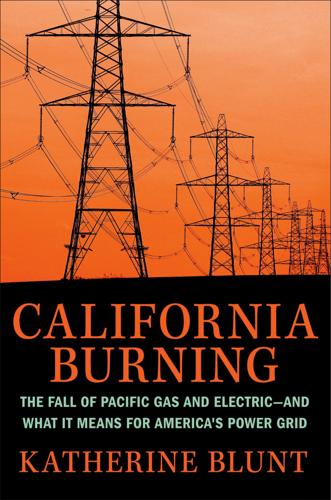
California Burning: The Fall of Pacific Gas and Electric--And What It Means for America's Power Grid
by
Katherine Blunt
Published 29 Aug 2022
The first outages occurred in June of that year as a heat wave swept the state. The grid operator faced the prospect of demand surging beyond available supply, straining the grid to the point of collapse. It ordered PG&E to cut power in phases to tens of thousands of customers throughout the Bay Area to help relieve the stress. PG&E rotated the outages, called rolling blackouts, throughout the region on an hourly basis in an effort to make sure no customer was in the dark for too long. Bob Glynn, who had by then become PG&E’s CEO and chairman, was angry and frustrated. The deregulation effort he had spoken in favor of was so broken that the company was forced to turn out the lights on its customers to keep demand in line with supply.
…
He had spent years as an adviser to power companies looking to build plants in California and had been involved in shaping the deregulation bill. He knew most everyone in Sacramento. He made some calls, trying to set up a meeting with the governor. But Davis kept his distance as his advisers debated what he ought to do. In December, as the grid operator narrowly managed to avoid more rolling blackouts, Davis finally agreed to a meeting with the heads of the three utilities. Glynn and Richard arrived in Sacramento to sit down with Davis, the president of the CPUC, and the leaders of the senate and the assembly. PG&E and Southern California Edison dominated the discussion. The two utilities were together in an $8 billion hole.
…
The outage had swept from New York to Canada, stranding travelers, cutting off emergency services and leaving millions sweltering in their homes. The cause was unknown at the time. But it was clear that the problem had disrupted the balance of supply and demand on the grid. The result was the sort of cascading failure that the California grid operator had narrowly avoided by resorting to rolling blackouts a few years earlier. “This is an operation that will take several days to get the system back to where it’s totally normal,” Earley said. “It’s a very complex process.” Earley worked almost around the clock for the next several days, subsisting on Fritos and yogurt until power was restored the morning of August 16.
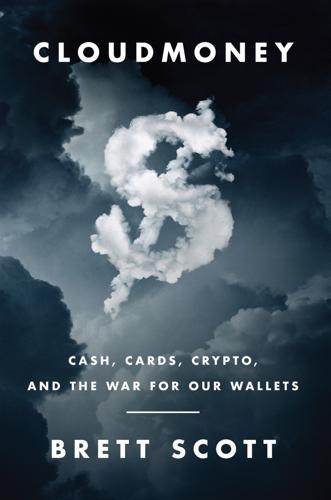
Cloudmoney: Cash, Cards, Crypto, and the War for Our Wallets
by
Brett Scott
Published 4 Jul 2022
The most contrarian form of money in the world, then, may be the simplest and most unfashionable. Cash. It remains a bug in the system, standing in the way of the fusion between finance and tech, and this is precisely why it is one of our last hopes. Conclusion In South Africa I experienced years of ‘rolling blackouts’ when the electricity infrastructure failed. Electricity animates so much of modern life, so as the power went out towns were plunged into darkness, televisions involuntarily cut out and all appliances became unusable. This caused much disruption, but it also had another effect. With the hum of electricity gone, we would hear the insects, and the blanket of darkness allowed us to see the stars.
…
Morgan, 8, 96, 150, 156, 227, 232 Jamaica, 42 Japan, 18, 35, 135, 215, 248 Johannesburg, South Africa, 129 Johnson, Alexander Boris, 38 Kazakhstan, 11, 227–9, 233, 247 Keep Cash UK, 262 Kelly, Kevin, 12 Kentridge, William, 144 Kenya, 47, 75, 129, 130–31, 169, 178, 179 Kerouac, Jack, 173, 175 Keynesianism, 80 ‘Kindness is Cashless’, 40 Kiva, 238 Kowloon Walled City, Hong Kong, 216, 219, 220, 226 Kuala Lumpur, Malaysia, 60, 74 Kurzweil, Ray, 153, 252–3 Kyoto, Japan, 135 La Guardia Airport, New York, 128 learning methodology, 163–4 left-wing politics, 7, 184, 191, 211–12, 215 Lehman Brothers, 17–18 Lenddo, 169 Level 39, Canary Wharf, 17, 20, 27, 41, 143 Leviathan (Hobbes), 177 leviathans, 177–84, 215–16 libertarianism, 7, 14, 42, 155, 156, 184 cryptocurrency and, 191, 212, 215–16, 225–6 Libra, 236–41, 245 Litecoin, 218 Lloyds, 72–3, 144, 146 loans, 70–71, 107, 159 artificial intelligence and, 167–8, 172 London, England, 128, 247, 248 Brixton Market, 177 Camberwell, 128 Canary Wharf, 17–18, 20, 41, 62, 211 City of London, 6, 135 Mayor’s Fund, 38 Somali diaspora, 116, 179 Stock Exchange, 24 Underground, 11, 37–8, 86, 87 longevity derivatives, 160 Lonsdale, Joe, 155 Lord of the Rings, The (Tolkien), 19, 155 Los Angeles, California, 101 Luther, Martin, 212 M-Pesa, 79, 109 machine-learning systems, 163–4 Macon, USS, 153 Mafia, 163 Main Incubator, 143 Malaysia, 7, 45, 60, 74 Malick, Badal, 127–8 malware, 32 manifest destiny, 212 ‘Manifesto for Cashlessness’ (Emili), 37 Maputo, Mozambique, 96 Marcus, David, 237, 241 Maréchal, Nathalie, 113 marijuana industry, 101–3 market price, 29, 171 markets, 65, 124–6, 176–80 choice and, 124–6 giant parable, 54 informal, 176–9 oligopolies and, 124–5 payments companies and, 29, 30, 31, 32–3 Marxism, 155, 262 Massachusetts, United States, 46 Massachusetts Institute of Technology (MIT), 7 Mastercard, 30, 37, 39, 77, 91 automatic payments, 149 data, 109, 111 financial inclusion and, 131–2 Wikileaks blockade, 116 Masters, Blythe, 232 Matrix, The (1999 film), 226 Mayfair, London, 6 McDonald’s, 145, 153 Medici family, 135 Melanesia, 255–6 Mercy Corps, 131, 132 Mexico, 42 Microsoft, 7 Azure cloud, 233 Word, 32, 156 middle class, 86, 128, 129 Mighty Ducks, The (1992 film), 234 Military Spouse, 153 millennials, 86, 140 Minority Report (2002 film), 10 mis-categorisations, 167 mist, 30–33 MIT Media Lab, 7 Modi, Narendra, 43, 93 Moffett airfield, California, 153 Monetarism, 80 money creation, 59–63, 67–72, 202 Money Heist (2017 series), 61 money laundering, 42, 116 money users vs. issuers, 50–52 money-passers, 30, 32–3 Monzo, 113, 142 Moon Express Inc., 153 mortgages, 26–7, 94 motor cortex, 248 Mountain View, Silicon Valley, 153 Moynihan, Brian, 38 Mr Robot, 184 Mubarak, Hosni, 116 Mugabe, Robert, 239–41 Mumbai, India, 96 Musk, Elon, 15, 212, 257 mutual credit systems, 259–60 N26, 142 Nairobi, Kenya, 129, 179 Nakamoto, Satoshi, 13, 184–5, 187, 191, 204 NASDAQ, 157, 233 National Aeronautics and Space Administration (NASA), 153 National Arts Festival, 144 National Retail Federation, 86 National Security Agency (NSA), 112, 155 Nationwide, 145–6 Natural Language Processing (NLP), 146 natural market order, 192 Nazarbayev, Nursultan, 227 Neener Analytics, 169 neo-Nazism, 226 nervous system, 20–22, 57, 80, 81, 240, 247–8, 251–2 Nestlé, 24, 28 Netflix, 61 Netherlands, 48, 49, 128–9 Nets Union Clearing Corp, 115 Network Computing, 78 New Age spiritualism, 7, 14, 193, 226 New Jersey, United States, 46 New Scientist, 137 New World Order, 261 New York City, New York, 18, 91–2, 128, 248 La Guardia Airport, 128 Wall Street, 6, 178–9 Nigeria, 43 No Cash Day, 37 no-file clients, 169 Nobel Prize, 93 nomadism, 228 non-seepage, 73 Norway, 35 nudging, 39, 93, 114 Nur-Sultan, Kazakhstan, 11, 227–9 O’Gieblyn, Meghan, 154 Oakdale, California, 101 Occupy movement (2011–12), 211, 215 Office of National Statistics, 83 oil industry, 6, 22–4 oligopolies, 2, 12, 15, 89, 124–5, 142, 151, 180–83, 191 cryptocurrencies and, 229–33, 246 On the Road (Kerouac), 173, 175 OpenBazaar, 229 OpenOil, 24 operating system, 141–2 Oracle, 109 Oxford English Dictionary, 144 Pakistan, 61 Palantir, 155, 157, 226 Panama Papers leak (2016), 81 panopticon effect, 118–19, 172 Papua New Guinea, 191 passive process, 125–6 PATRIOT Act (2001), 111, 179 payments companies, 30, 32–3, 39–41, 77–8, 79 automatic payments, 149 data, 108–9 interpellation, 86–7 plug-ins, 79, 115, 141–2 PayPal, 50, 79, 109, 155, 226, 233–7, 243 New Money campaign (2016), 86–7 Wikileaks blockade, 116 Payter, 31–2 Paytm, 44, 79, 150 Peercoin, 218 Penny for London, 37–8 pension funds, 7, 23 People’s Bank of China, 79, 242 periphery, 28, 248 Peru, 129–30, 176 Peter Diamandis, 153 Philadelphia, Pennsylvania, 41, 133 Pierce, Brock, 234 Piercy, Marge, 150 Pisac, Peru, 129 point-of-sales devices, 40, 77, 130 points of presence, 148 poker games, 91 Poland, 37, 91 police, trust in, 93 Politics of Bitcoin, The (Golumbia), 225 posture, 49 pre-capitalist societies, 55, 215, 251 Premier League, 231 primary system, 50–64 Privacy International, 168 privacy, 2, 43, 44, 46, 47, 104–19 private blockchains, 229, 231 Prohibition (1920–33), 102 promises, 50, 52, 58–9, 61, 70–72, 205–6, 259–60 casino chips, 68–9 deposits as, 69 digital money, 70–72 giant parable, 52–6, 63–4, 188 loans, 70–71, 107, 159 mutual credit systems, 259–60 Promontory Financial Group, 38 Protestantism, 212, 255 psilocybin, 226 psychometric testing, 169 pub quizzes, 91 Pucallpa, Peru, 130, 176, 249 Puerto Rico, 234 Quakers, 135 Quechuan people, 129 Quorum, 232 R3, 233 RAND Corporation, 105 re-localisation, 259 re-skinning, 16, 135–51, 171, 175 Red Crescent, 131 refugees, 131–2 Reinventing Money conference (2016), 31 remittances, 105, 116 Revolut, 140, 142 right-wing politics, 7, 14, 184, 191–3, 211–12, 215, 225–6, 261 rippling credit, 260 risk-adjusted profit, 94 Robert Koch Institute, 34 robotics, 11 Rogoff, Kenneth, 47, 92–3 rolling blackouts, 247 Roman Empire (27 BCE–395 CE), 55–6 Romeo and Juliet (Shakespeare), 29, 30, 32 Rowe, Paulette, 38 Royal Bank of Canada, 158 Royal Bank of Scotland, 62 Russia, 6, 42, 48, 140, 227 Samsung, 11 San Francisco, California, 35, 46, 119, 133, 179, 247 Sān people, 4 Santander, 38 Sardex system, 259 Satoshi’s Vision Conference, 215 Save the Children, 131 savers, 25 Scott, James, 228 seasteading, 156, 216 secondary system, 50, 63–4 self-service, 145–6 SEPA, 80 September 11 attacks (2001), 111 Serbia, 7 sex workers, 96 Shakespeare, William, 29 Shanghai, China, 18, 115, 248 Shazam, 180 Sherlock Holmes series (Doyle), 114, 162, 165, 166 Shiba Inu, 13 Shipibo-Conibo people, 130 Sikoba, 260 Silicon Valley, 7, 9, 139–41, 148, 153, 180, 221 Libra, 237 Singularity, 154–6, 252–3 Silk Road, 227, 229 Singapore, 11, 18, 168, 248 Singularity, 153–6, 226, 252, 252–3 Singularity University, 153–6, 252–3 six degrees of separation theory, 260 skyscrapers, 17–20, 27, 253 slow-boiling frogs, 104 smart cities, 11, 180 smart contracts, 220–24, 258 smart homes, 180 smartphones, 4, 28 financial inclusion and, 95 posture and, 49 Smith, Adam, 251 smoking, 181 Snow Crash (Stephenson), 10 social class, 91–9, 113, 128, 129, 155, 167 Somalia, 116, 179 South Africa, 3–4, 11, 28, 55, 62, 128, 175–6 apartheid, 95 hut tax, 55 National Arts Festival, 144 rolling blackouts, 247 syncretism in, 175–6 South Sudan, 105 Spiegel, Der, 112 Spotify, 166 spread-betting companies, 26 stablecoins, 233–41, 245–6, 255 Standard Bank, 95, 144 states, 42–5, 50–64, 176–85, 215 anti-statism, 42, 184, 215–16 base money, 69 centralisation of power, 15, 180–83 cryptocurrency and, 215 data surveillance, 110–12, 114–15, 155, 168 digital currencies, 242–5 expansion and contraction, 57–8 giant parable, 52–6, 63–4 markets and, 176–80 money issuance, 58–9 primary system, 50, 51, 63 Stockholm syndrome, 121, 131 sub-currencies, 72–3 sub-prime mortgages, 26–7, 94 subsidiary companies, 24, 26–7 Sufism, 91 suits, 124 Sunset Boulevard, Los Angeles, 101 Super Bowl, 8, 261 super-system, 3 supply, 29 surveillance, 2, 7, 8, 10, 15, 33, 39, 42, 72, 104–19, 153–72, 180, 250 artificial intelligence and, 153–72 banking sector and, 108–9 Big Brother, 113–15 CBDCs and, 244, 245 panopticon effect, 118–19, 172 payments censorship, 116–18 predictive systems, 105 states and, 110–12, 114–15, 168 Suspicious Activity Reports (SARs), 111 Sweden, 35, 43, 48, 84, 121 Sweetgreen, 91, 93 SWIFT, 32, 75–6, 80, 108, 112 Switzerland, 35, 108 Symbiosis Gathering, 101 syncing, 195–7, 200–202, 231 syncretism, 175–6 systems failures, 32, 34, 48 Szabo, Nick, 220 Taiwan, 234, 235 Tala, 169 taxation, 55, 57, 110 evasion, 42, 43, 45, 46 TechCrunch Disrupt, 130 Tencent, 2, 7, 114, 178 terrorism, 42, 48, 112, 127 Tether, 234–5, 241 Thaler, Richard, 93 Thatcher, Margaret, 193 Thiel, Peter, 155, 226 thin-file clients, 169 timelines, 197–200 Times of India, 44 tobacco, 181 Tokyo, Japan, 18, 215, 248 Tracfin, 112 transfers, 74–8 transhumanism, 180 Transport for London, 11, 37–8, 86, 87 Transylvania, 65 Trustlines, 260 Twitter, 167, 198 Uber, 2, 149, 177, 179, 237 Uganda, 168 unbanked, 35, 94, 181, 238 underdog, support for, 106 Unilever, 99, 131 United Kingdom American Revolutionary War (1775–83), 60 banking oligopoly, 230 Canary Wharf, 17–18, 20, 41, 62, 211 cash use in, 249 City of London, 6, 135 colonialism, 55, 97, 175–6, 178, 239 digital money system in, 72 GCHQ, 112 HMRC, 110 Premier League, 231 Royal Mint, 60 Somali diaspora, 116, 179 Taylor Review (2016–17), 110 Transport for London, 11, 37–8, 86, 87 United Nations, 14 blockchain research, 222 Capital Development Fund, 37 World Food Programme, 132 United States cash use in, 41, 46, 133 CBDCs and, 244–5, 254 Central Intelligence Agency (CIA), 155 China, relations with, 74–5, 245, 255 data surveillance, 111–12, 155 dollar system, 80, 182, 210, 233–6, 239, 240 Federal Bureau of Investigation (FBI), 111, 155 Federal Reserve, 32, 35, 36, 234 Financial Crimes Enforcement Network, 111 hurricanes in, 36 leviathan complex, 178 marijuana industry, 101–3 NASA, 153 National Security Agency (NSA), 112, 155 Occupy movement (2011–12), 211, 215 PATRIOT Act (2001), 111, 179 Prohibition (1920–33), 102 Revolutionary War (1775–83), 60 Senate, 105–6 September 11 attacks (2001), 111 Singularity University, 153–6 Super Bowl, 8, 261 Wall Street, 6, 178–9 Uruguay, 42 USAID, 45, 127, 178, 179, 245 vending machines, 31–2, 220 Venmo, 79, 243 Ver, Roger, 212, 214, 215 Vienna, Austria, 7 virtual reality, 10 Visa, 15, 30, 31, 37, 39, 40, 41, 44, 77, 80, 127, 174, 255 automatic payments, 149 data, 108, 109, 111, 112 plug-ins, 142 USAID and, 128, 178, 245 Wikileaks blockade, 116 VisaNet, 77 Wall Street, New York City, 6, 178–9 Occupy movement (2011–12), 211, 215 Wall Street (1987 film), 8 Wall Street Journal, 133 Warner, Malcolm, 106 WarOnCash, 37 Weber, Max, 179 WeChat, 79, 109, 114–15, 150 welfare, 43, 113, 118 Wells Fargo, 109, 234, 235 WhatsApp, 75, 198, 237–8, 244, 255 Wikileaks, 116, 183 Wilson, Cody, 216 Winton Motor Carriage Company, 87, 90 Wired, 12 World Economic Forum, 11 World Food Programme, 132 World Health Organisation (WHO), 34 World of Warcraft (2004 game), 234 Xhosa people, 175–6 YouTube, 163, 166, 167, 170 Zambia, 131 Zimbabwe, 11, 239–41, 245 Zuckerberg, Mark, 241 About the Author BRETT SCOTT is an economic anthropologist, financial activist, and former broker.
…
Morgan, 8, 96, 150, 156, 227, 232 Jamaica, 42 Japan, 18, 35, 135, 215, 248 Johannesburg, South Africa, 129 Johnson, Alexander Boris, 38 Kazakhstan, 11, 227–9, 233, 247 Keep Cash UK, 262 Kelly, Kevin, 12 Kentridge, William, 144 Kenya, 47, 75, 129, 130–31, 169, 178, 179 Kerouac, Jack, 173, 175 Keynesianism, 80 ‘Kindness is Cashless’, 40 Kiva, 238 Kowloon Walled City, Hong Kong, 216, 219, 220, 226 Kuala Lumpur, Malaysia, 60, 74 Kurzweil, Ray, 153, 252–3 Kyoto, Japan, 135 La Guardia Airport, New York, 128 learning methodology, 163–4 left-wing politics, 7, 184, 191, 211–12, 215 Lehman Brothers, 17–18 Lenddo, 169 Level 39, Canary Wharf, 17, 20, 27, 41, 143 Leviathan (Hobbes), 177 leviathans, 177–84, 215–16 libertarianism, 7, 14, 42, 155, 156, 184 cryptocurrency and, 191, 212, 215–16, 225–6 Libra, 236–41, 245 Litecoin, 218 Lloyds, 72–3, 144, 146 loans, 70–71, 107, 159 artificial intelligence and, 167–8, 172 London, England, 128, 247, 248 Brixton Market, 177 Camberwell, 128 Canary Wharf, 17–18, 20, 41, 62, 211 City of London, 6, 135 Mayor’s Fund, 38 Somali diaspora, 116, 179 Stock Exchange, 24 Underground, 11, 37–8, 86, 87 longevity derivatives, 160 Lonsdale, Joe, 155 Lord of the Rings, The (Tolkien), 19, 155 Los Angeles, California, 101 Luther, Martin, 212 M-Pesa, 79, 109 machine-learning systems, 163–4 Macon, USS, 153 Mafia, 163 Main Incubator, 143 Malaysia, 7, 45, 60, 74 Malick, Badal, 127–8 malware, 32 manifest destiny, 212 ‘Manifesto for Cashlessness’ (Emili), 37 Maputo, Mozambique, 96 Marcus, David, 237, 241 Maréchal, Nathalie, 113 marijuana industry, 101–3 market price, 29, 171 markets, 65, 124–6, 176–80 choice and, 124–6 giant parable, 54 informal, 176–9 oligopolies and, 124–5 payments companies and, 29, 30, 31, 32–3 Marxism, 155, 262 Massachusetts, United States, 46 Massachusetts Institute of Technology (MIT), 7 Mastercard, 30, 37, 39, 77, 91 automatic payments, 149 data, 109, 111 financial inclusion and, 131–2 Wikileaks blockade, 116 Masters, Blythe, 232 Matrix, The (1999 film), 226 Mayfair, London, 6 McDonald’s, 145, 153 Medici family, 135 Melanesia, 255–6 Mercy Corps, 131, 132 Mexico, 42 Microsoft, 7 Azure cloud, 233 Word, 32, 156 middle class, 86, 128, 129 Mighty Ducks, The (1992 film), 234 Military Spouse, 153 millennials, 86, 140 Minority Report (2002 film), 10 mis-categorisations, 167 mist, 30–33 MIT Media Lab, 7 Modi, Narendra, 43, 93 Moffett airfield, California, 153 Monetarism, 80 money creation, 59–63, 67–72, 202 Money Heist (2017 series), 61 money laundering, 42, 116 money users vs. issuers, 50–52 money-passers, 30, 32–3 Monzo, 113, 142 Moon Express Inc., 153 mortgages, 26–7, 94 motor cortex, 248 Mountain View, Silicon Valley, 153 Moynihan, Brian, 38 Mr Robot, 184 Mubarak, Hosni, 116 Mugabe, Robert, 239–41 Mumbai, India, 96 Musk, Elon, 15, 212, 257 mutual credit systems, 259–60 N26, 142 Nairobi, Kenya, 129, 179 Nakamoto, Satoshi, 13, 184–5, 187, 191, 204 NASDAQ, 157, 233 National Aeronautics and Space Administration (NASA), 153 National Arts Festival, 144 National Retail Federation, 86 National Security Agency (NSA), 112, 155 Nationwide, 145–6 Natural Language Processing (NLP), 146 natural market order, 192 Nazarbayev, Nursultan, 227 Neener Analytics, 169 neo-Nazism, 226 nervous system, 20–22, 57, 80, 81, 240, 247–8, 251–2 Nestlé, 24, 28 Netflix, 61 Netherlands, 48, 49, 128–9 Nets Union Clearing Corp, 115 Network Computing, 78 New Age spiritualism, 7, 14, 193, 226 New Jersey, United States, 46 New Scientist, 137 New World Order, 261 New York City, New York, 18, 91–2, 128, 248 La Guardia Airport, 128 Wall Street, 6, 178–9 Nigeria, 43 No Cash Day, 37 no-file clients, 169 Nobel Prize, 93 nomadism, 228 non-seepage, 73 Norway, 35 nudging, 39, 93, 114 Nur-Sultan, Kazakhstan, 11, 227–9 O’Gieblyn, Meghan, 154 Oakdale, California, 101 Occupy movement (2011–12), 211, 215 Office of National Statistics, 83 oil industry, 6, 22–4 oligopolies, 2, 12, 15, 89, 124–5, 142, 151, 180–83, 191 cryptocurrencies and, 229–33, 246 On the Road (Kerouac), 173, 175 OpenBazaar, 229 OpenOil, 24 operating system, 141–2 Oracle, 109 Oxford English Dictionary, 144 Pakistan, 61 Palantir, 155, 157, 226 Panama Papers leak (2016), 81 panopticon effect, 118–19, 172 Papua New Guinea, 191 passive process, 125–6 PATRIOT Act (2001), 111, 179 payments companies, 30, 32–3, 39–41, 77–8, 79 automatic payments, 149 data, 108–9 interpellation, 86–7 plug-ins, 79, 115, 141–2 PayPal, 50, 79, 109, 155, 226, 233–7, 243 New Money campaign (2016), 86–7 Wikileaks blockade, 116 Payter, 31–2 Paytm, 44, 79, 150 Peercoin, 218 Penny for London, 37–8 pension funds, 7, 23 People’s Bank of China, 79, 242 periphery, 28, 248 Peru, 129–30, 176 Peter Diamandis, 153 Philadelphia, Pennsylvania, 41, 133 Pierce, Brock, 234 Piercy, Marge, 150 Pisac, Peru, 129 point-of-sales devices, 40, 77, 130 points of presence, 148 poker games, 91 Poland, 37, 91 police, trust in, 93 Politics of Bitcoin, The (Golumbia), 225 posture, 49 pre-capitalist societies, 55, 215, 251 Premier League, 231 primary system, 50–64 Privacy International, 168 privacy, 2, 43, 44, 46, 47, 104–19 private blockchains, 229, 231 Prohibition (1920–33), 102 promises, 50, 52, 58–9, 61, 70–72, 205–6, 259–60 casino chips, 68–9 deposits as, 69 digital money, 70–72 giant parable, 52–6, 63–4, 188 loans, 70–71, 107, 159 mutual credit systems, 259–60 Promontory Financial Group, 38 Protestantism, 212, 255 psilocybin, 226 psychometric testing, 169 pub quizzes, 91 Pucallpa, Peru, 130, 176, 249 Puerto Rico, 234 Quakers, 135 Quechuan people, 129 Quorum, 232 R3, 233 RAND Corporation, 105 re-localisation, 259 re-skinning, 16, 135–51, 171, 175 Red Crescent, 131 refugees, 131–2 Reinventing Money conference (2016), 31 remittances, 105, 116 Revolut, 140, 142 right-wing politics, 7, 14, 184, 191–3, 211–12, 215, 225–6, 261 rippling credit, 260 risk-adjusted profit, 94 Robert Koch Institute, 34 robotics, 11 Rogoff, Kenneth, 47, 92–3 rolling blackouts, 247 Roman Empire (27 BCE–395 CE), 55–6 Romeo and Juliet (Shakespeare), 29, 30, 32 Rowe, Paulette, 38 Royal Bank of Canada, 158 Royal Bank of Scotland, 62 Russia, 6, 42, 48, 140, 227 Samsung, 11 San Francisco, California, 35, 46, 119, 133, 179, 247 Sān people, 4 Santander, 38 Sardex system, 259 Satoshi’s Vision Conference, 215 Save the Children, 131 savers, 25 Scott, James, 228 seasteading, 156, 216 secondary system, 50, 63–4 self-service, 145–6 SEPA, 80 September 11 attacks (2001), 111 Serbia, 7 sex workers, 96 Shakespeare, William, 29 Shanghai, China, 18, 115, 248 Shazam, 180 Sherlock Holmes series (Doyle), 114, 162, 165, 166 Shiba Inu, 13 Shipibo-Conibo people, 130 Sikoba, 260 Silicon Valley, 7, 9, 139–41, 148, 153, 180, 221 Libra, 237 Singularity, 154–6, 252–3 Silk Road, 227, 229 Singapore, 11, 18, 168, 248 Singularity, 153–6, 226, 252, 252–3 Singularity University, 153–6, 252–3 six degrees of separation theory, 260 skyscrapers, 17–20, 27, 253 slow-boiling frogs, 104 smart cities, 11, 180 smart contracts, 220–24, 258 smart homes, 180 smartphones, 4, 28 financial inclusion and, 95 posture and, 49 Smith, Adam, 251 smoking, 181 Snow Crash (Stephenson), 10 social class, 91–9, 113, 128, 129, 155, 167 Somalia, 116, 179 South Africa, 3–4, 11, 28, 55, 62, 128, 175–6 apartheid, 95 hut tax, 55 National Arts Festival, 144 rolling blackouts, 247 syncretism in, 175–6 South Sudan, 105 Spiegel, Der, 112 Spotify, 166 spread-betting companies, 26 stablecoins, 233–41, 245–6, 255 Standard Bank, 95, 144 states, 42–5, 50–64, 176–85, 215 anti-statism, 42, 184, 215–16 base money, 69 centralisation of power, 15, 180–83 cryptocurrency and, 215 data surveillance, 110–12, 114–15, 155, 168 digital currencies, 242–5 expansion and contraction, 57–8 giant parable, 52–6, 63–4 markets and, 176–80 money issuance, 58–9 primary system, 50, 51, 63 Stockholm syndrome, 121, 131 sub-currencies, 72–3 sub-prime mortgages, 26–7, 94 subsidiary companies, 24, 26–7 Sufism, 91 suits, 124 Sunset Boulevard, Los Angeles, 101 Super Bowl, 8, 261 super-system, 3 supply, 29 surveillance, 2, 7, 8, 10, 15, 33, 39, 42, 72, 104–19, 153–72, 180, 250 artificial intelligence and, 153–72 banking sector and, 108–9 Big Brother, 113–15 CBDCs and, 244, 245 panopticon effect, 118–19, 172 payments censorship, 116–18 predictive systems, 105 states and, 110–12, 114–15, 168 Suspicious Activity Reports (SARs), 111 Sweden, 35, 43, 48, 84, 121 Sweetgreen, 91, 93 SWIFT, 32, 75–6, 80, 108, 112 Switzerland, 35, 108 Symbiosis Gathering, 101 syncing, 195–7, 200–202, 231 syncretism, 175–6 systems failures, 32, 34, 48 Szabo, Nick, 220 Taiwan, 234, 235 Tala, 169 taxation, 55, 57, 110 evasion, 42, 43, 45, 46 TechCrunch Disrupt, 130 Tencent, 2, 7, 114, 178 terrorism, 42, 48, 112, 127 Tether, 234–5, 241 Thaler, Richard, 93 Thatcher, Margaret, 193 Thiel, Peter, 155, 226 thin-file clients, 169 timelines, 197–200 Times of India, 44 tobacco, 181 Tokyo, Japan, 18, 215, 248 Tracfin, 112 transfers, 74–8 transhumanism, 180 Transport for London, 11, 37–8, 86, 87 Transylvania, 65 Trustlines, 260 Twitter, 167, 198 Uber, 2, 149, 177, 179, 237 Uganda, 168 unbanked, 35, 94, 181, 238 underdog, support for, 106 Unilever, 99, 131 United Kingdom American Revolutionary War (1775–83), 60 banking oligopoly, 230 Canary Wharf, 17–18, 20, 41, 62, 211 cash use in, 249 City of London, 6, 135 colonialism, 55, 97, 175–6, 178, 239 digital money system in, 72 GCHQ, 112 HMRC, 110 Premier League, 231 Royal Mint, 60 Somali diaspora, 116, 179 Taylor Review (2016–17), 110 Transport for London, 11, 37–8, 86, 87 United Nations, 14 blockchain research, 222 Capital Development Fund, 37 World Food Programme, 132 United States cash use in, 41, 46, 133 CBDCs and, 244–5, 254 Central Intelligence Agency (CIA), 155 China, relations with, 74–5, 245, 255 data surveillance, 111–12, 155 dollar system, 80, 182, 210, 233–6, 239, 240 Federal Bureau of Investigation (FBI), 111, 155 Federal Reserve, 32, 35, 36, 234 Financial Crimes Enforcement Network, 111 hurricanes in, 36 leviathan complex, 178 marijuana industry, 101–3 NASA, 153 National Security Agency (NSA), 112, 155 Occupy movement (2011–12), 211, 215 PATRIOT Act (2001), 111, 179 Prohibition (1920–33), 102 Revolutionary War (1775–83), 60 Senate, 105–6 September 11 attacks (2001), 111 Singularity University, 153–6 Super Bowl, 8, 261 Wall Street, 6, 178–9 Uruguay, 42 USAID, 45, 127, 178, 179, 245 vending machines, 31–2, 220 Venmo, 79, 243 Ver, Roger, 212, 214, 215 Vienna, Austria, 7 virtual reality, 10 Visa, 15, 30, 31, 37, 39, 40, 41, 44, 77, 80, 127, 174, 255 automatic payments, 149 data, 108, 109, 111, 112 plug-ins, 142 USAID and, 128, 178, 245 Wikileaks blockade, 116 VisaNet, 77 Wall Street, New York City, 6, 178–9 Occupy movement (2011–12), 211, 215 Wall Street (1987 film), 8 Wall Street Journal, 133 Warner, Malcolm, 106 WarOnCash, 37 Weber, Max, 179 WeChat, 79, 109, 114–15, 150 welfare, 43, 113, 118 Wells Fargo, 109, 234, 235 WhatsApp, 75, 198, 237–8, 244, 255 Wikileaks, 116, 183 Wilson, Cody, 216 Winton Motor Carriage Company, 87, 90 Wired, 12 World Economic Forum, 11 World Food Programme, 132 World Health Organisation (WHO), 34 World of Warcraft (2004 game), 234 Xhosa people, 175–6 YouTube, 163, 166, 167, 170 Zambia, 131 Zimbabwe, 11, 239–41, 245 Zuckerberg, Mark, 241 About the Author BRETT SCOTT is an economic anthropologist, financial activist, and former broker.
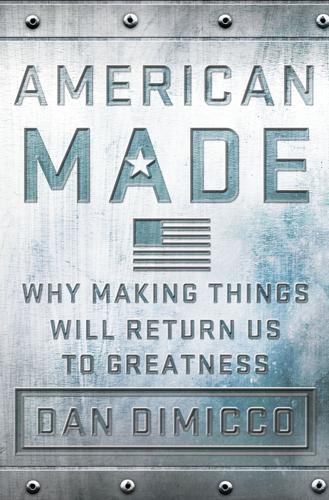
American Made: Why Making Things Will Return Us to Greatness
by
Dan Dimicco
Published 3 Mar 2015
International business travelers have likely experienced how truly high-speed Internet works—it’s vastly superior to the Wi-Fi most Americans use. Superstorm Sandy, which pummeled New York and New Jersey in 2012, exposed exactly how frail the physical infrastructure of the nation’s largest metropolitan region is. In certain parts of the country, rolling blackouts and brownouts have become routine during the hot summer months. When asked, an overwhelming majority of Americans—more than seven in ten, in at least one poll—think state and federal governments should spend more on transportation and infrastructure upgrades.1 But most Americans don’t need to be asked.
…
We’ll save as much as 7 billion gallons of water a day from being wasted due to rusty and leaky pipes.18 Better light rail and mass transit will save about $71 million in gasoline a year.19 A satellite-based air-traffic control system—dubbed “NextGen” by the FAA—would slash delays and allow for more direct flights, saving airlines and consumers an estimated $24 billion through 2020, 1.4 billion gallons in jet fuel, and 14 billion fewer tons of CO2.20 A smarter power grid will improve distribution, cutting outages and rolling blackouts and saving anywhere from $25 billion to $180 billion a year.21 The current conversation about twenty-first-century infrastructure often includes high-speed rail as well. China, Japan, Singapore, Germany, France, and Spain have extensive high-speed rail systems that many Americans would love to emulate in the United States.
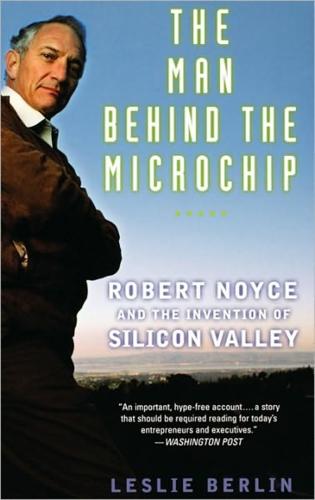
The Man Behind the Microchip: Robert Noyce and the Invention of Silicon Valley
by
Leslie Berlin
Published 9 Jun 2005
Within weeks, the state of California had declared the need to ration electricity and announced plans to ask industrial customers to cut their power consumption to levels 10 percent below those of the corresponding month a year earlier. If the voluntary 10-percent plan did not work, then the utilities companies might resort to rolling blackouts to conserve power. The prospect of rolling blackouts alarmed Noyce, who readily admitted that the semiconductor industry had designed its processes and equipment “assum[ing] that petrochemicals were free and available and that power was free and available.” The average wafer fab used 30 times as much electricity as a commercial office building of the same size, and consumed large quantities of xylene, acetone, and disopropyl alcohol, all petrochemical derivatives.10 Immediately upon learning of the state’s plans, Noyce had Intel start conservation and recycling efforts in-house.
…
See unions Lafferty, Jim, ix, 4, 228, 248, 279–80, 299, 387 Lamm, Donald, x Landsdale, Pennsylvania, 49–50, 52 Large Scale Integration (LSI), 160; startup activity around, 159 lasers, 192 Last, Jay, ix, 69–71, 122–24, 127, 146, 161, 387; at Fairchild, 88, 90, 94, 113, 120; in group of eight, 82–86, 96, 112, 124; and integrated circuit, 111–12; and planar process, 107–8; at Shockley, 61, 65, 67, 73, 78–79 layoffs, 188, 223–24, 231 Leaves of Grass (Whitman), 306 Lécuyer, Christophe, ix Leggett, Glenn, 193–95, 387 Lehovec, Kurt, 104, 141 Lenoir, Tim, x Levine, Jerry, 116, 131, 387 licensing of patents, 55, 79, 117, 134– 35, 139–40, 269. See also patents Lifetime Achievement Medal, 302 Lindgren, Patricia, 387 Livermore, California, 207, 237 lobbying, 3; on capital gains, 262; against rolling blackouts, 209; SEMATECH, 283–84; on SIA, 262, 266, 268–70, 273 Los Altos Hills, 117 Los Angeles Times, 271 Lowood, Henry, x Lundgren, Dan, 265 McCain, John, 285 McDonalds restaurants, 227 McEnery, Tom, 287 McKenna, Regis, ix, 203–4, 245, 248, 251, 387 Mackay, Bruce, 387 MacLeod, Norman, 241 McMurry, Hamstra, 60 McMurray, Charles and Ann, 387 McNamara, Robert, 137 magnesium oxide, 42 Maine, 168–69, 201, 211, 214, 217, 234 Maness, Barbara, 200–202, 215–16, 232 Manly, Charles, 387 manufacturing.
…
.: as actuary, 23, 106; angel (private) investing by, 192– 93, 218–20, 240, 275; April Fool’s joke, 148; arm fracture of, 41; attitude toward government contracting, 50, 130–31, 281; attitude toward management, 90, 106–7, 128, 154, 180; birth of, 10–11; book-printing analogy of, 138; camera (hobby), 278; camera (stepand-repeat design), 94; childhood of, 11–18; college years, 14 (See also Grinnel College; MIT); on computers, 212, 225–27, 252, 278; on confidence, 113, 133, 179, 246; on cooperative research, 281; creativity of, 97–98, 130–31; day declared in honor of, 3, 246, 304–5; death of, 303–5; decision to leave Fairchild, 149–54; decision to leave Shockley, 81; and dislike of confrontation, 35, 89–90, 145, 198, 260; dislike of hierarchy, 114–16, 128, 191; dissertation of, 38–42; and diving, 18, 19, 21; divorce of, 214–18, 234; draft concerns of, 24, 25, 51, 52; early physics studies of, 17–19; extramarital affair of, 146, 200–202, 215–16, 232; as Fairchild general manager, 105–7, 111–16, 119–23, 128–34, 142–43, 146–48, 153–54; as Fairchild R&D head, 90, 95, 106–7; family life of, 1, 47, 51–53, 65, 117–18, 134, 143–46, 178–79, 220, 228–29, 277, 300– 303; as father of Silicon Valley, 246; finances, early, 16, 20, 34–37, 45, 52, 86, 113, 203; and Fullbright award, 37; glider and model plane building by, 6–9, 37; graduate work of (MIT), 30–42; as Grinnell college student, 17, 19–22, 27–29, 33; as Grinnell college trustee, 144, 166, 193–94, 208; in group of eight, 82–86, 96, 112, 124; on group think, 172; high school, 14– 18; on information economy, 271; as Intel board chair, 238–39, 243– 46, 250, 255; as Intel director, 257– 58, 297; as Intel president, 157–59, 160–91, 195–210, 222–28; investment philosophy of, 240–41; jobs, early, 16, 20, 23, 28; as leader vs. manager, 153, 225–27; Lifetime Achievement Medal, 302; lobbying by (against rolling blackouts), 209; lobbying by (capital gains), 262; lobbying by (SEMATECH), 283– 84; lobbying by (SIA), 262, 266, 268–70, 273; love of California, 59, 82, 118–19; marriages of (See Bowers, Ann; Noyce, Betty Bottomley); mentoring young entrepreneurs, 2, 192–93, 241–43, 275–77, 278, 280, 299–300, 306, 307; on microprocessor, 182–83, 185, 186, 195–96, 203–6; move to California, 59–60, 62; on Murphy’s Law, 255; and music, 15, 35–36, 51, 144, 191; and Nobel Prize, 3, 66, 110, 246; obituaries for, 305; oil and gas investment, 300–301, 304; on optimism, 264; patents of, 48, 87, 97, Index 99, 100, 117, 389–90; philanthropy of, 210–12, 228–29, 274, 306; at Philco, 47–52; philosophy of, 240; physics studies of, 17–19; pig stealing by, 23; pilot hobby and personal airplanes of, 2, 117, 179–80, 201, 202, 208, 213, 228–29, 252, 278–80, 304–5; property owned by, 218, 277, 278, 302; public image of, 243–49; puffin airlift by, 211; on quick-and-dirty research approach, 175; as Rapid Robert, 1, 34, 37; relationship with Japanese, 117, 134, 184, 195, 260, 269; on religion, 16, 118, 235; as Renaissance man, 305; scuba diving of, 278; as SEMATECH CEO, 289– 304; sense of future, 2, 3, 206; and Shell Fellowship, 37; at Shockley Semiconductor Labs, 59–62, 64– 68, 71–78, 80–81; and skiing, 2, 38, 41, 191–92, 228, 248; and smoking, 16, 233–34; speaking schedule of, 297–98; as spokesman, 239; and stock options, 120, 150, 165, 179, 197–98, 246; support for education by, 274, 306; and tinkering, 7, 16, 36–37, 51, 144, 278, 298, 299–300; travel by (business), 117, 184, 195– 97; travel by (family vacation), 168–69; travel by (to China), 277; travel by (to Europe), 117, 121, 196–97, 228; travel by (to Japan), 117, 184, 185, 228; travel by (with Bowers), 277–78, 292; wealth, early discomfort with, 113, 117, 203; wealth of, 255, 275; and youth movement, 213 Noyce Chapel, 228–29 Noyce Foundation, 306 Oakmont, Pennsylvania, 230 obituaries, 305 oil and gas investment, 300–301, 304 Olivetti corporation, 121 Olson, Keith, 387 OmniPage, 276–77.
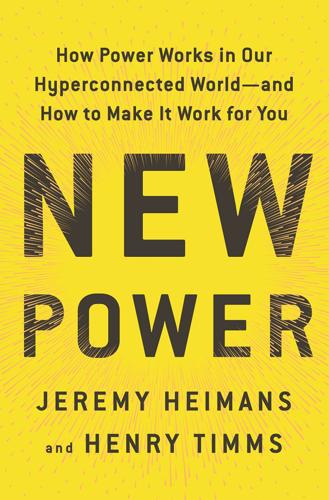
New Power: How Power Works in Our Hyperconnected World--And How to Make It Work for You
by
Jeremy Heimans
and
Henry Timms
Published 2 Apr 2018
Their idea began to spread. “Other mods said, ‘We’ll go black in solidarity with you,’ ” recalls Brian. Soon, the major /r/science subreddit went dark. Next, /r/AskReddit, the most popular subreddit on the site, shut down. “Then after that it just kind of snowballed where it became the cool thing to do.” A rolling blackout of the site’s 300+ top subreddits ensued and a full-scale rebellion—what quickly become known as #RedditRevolt, then “AMAgeddon”—was on. Reddit’s traffic had been all but annihilated—by its own moderators. In the days that followed, the best and worst of Reddit was on display. Reddit’s relatively new CEO Ellen Pao quickly apologized, recognizing the ignored grievances of the site’s moderators: We screwed up.
…
“When my wife got pregnant”: Brian Lynch, discussion with authors, November 19, 2015. On July 2, 2015: Sarah Burh, “Reddit: ‘We Screwed Up,’ ” TechCrunch, July 6, 2015. Other mods said, “ ‘We’ll go black’ ”: Brian Lynch, discussion with authors. “Then after that it just”: Ibid. A rolling blackout: Margaret Hartmann, “What Really Caused the Reddit Revolt?,” New York magazine, July 15, 2015. “We screwed up”: Burh, “Reddit: ‘We Screwed Up.’ ” “Reddit’s new age of censorship”: Billy Johnson, “Step Down as CEO of Reddit Inc.,” Change.org, July 2017. www.change.org. “We will ban subreddits”: Reddit, “Removing Harassing Subreddits,” June 10, 2015. www.reddit.com.
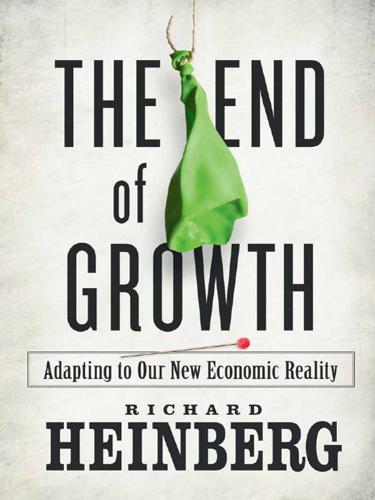
The End of Growth: Adapting to Our New Economic Reality
by
Richard Heinberg
Published 1 Jun 2011
Therefore natural disasters and industrial accidents, conservatively estimated, are already costing the equivalent of 8.6 percent of annual GDP growth. BOX 3.10 The Japan Earthquake As this book was in its final stages of preparation for printing, a massive earthquake and tsunami struck northern Japan. Thousands of lives were lost; entire towns were wiped out; nuclear reactors melted down; oil refineries were shuttered; rolling blackouts swept the nation; seaports were seriously damaged; and Toyota, Sony, and other major corporations ceased production. Only days after these horrific events it was already clear that Japan’s economy would be impacted for many months to come. Most oil traders at first assumed that so much destruction in the world’s third largest economy would lower world petroleum demand, but others soon argued that Japan would have to import more oil to make up for its lost electrical production capacity, and that refinery outages would put pressure on Asian diesel supplies.
…
Beijing’s 2010 energy efficiency goal was stringently enforced so that the nation would reach its target to decrease energy consumption per unit of GDP by 20 percent compared to 2005. As 2010 was winding down, some Zhejiang provincial officials tried to make their final five-year plan energy efficiency goal by enforcing rolling blackouts, turning off power at various times for days on end. The new five-year plan prioritizes investments in renewable energy, information and communications technologies, advanced transportation and materials, water supply and treatment technologies (including using plants for bioremediation), and air and water quality.

The Heat Will Kill You First: Life and Death on a Scorched Planet
by
Jeff Goodell
Published 10 Jul 2023
In Chester’s view, a Phoenix heat catastrophe begins with a blackout. It could be triggered any number of ways. On a hot day, a wildfire knocks out a major power line. A substation blows. A Russian hacker crashes the grid. In 2011, a utility worker doing routine maintenance near Yuma caused the loss of a 500-kilavolt power line that began a rolling blackout that shut off power for twelve hours to seven million people, including virtually the entire city of San Diego, causing economic losses of $100 million. “A major blackout in Phoenix could easily cost billions,” said Chester. When a city like Phoenix goes dark, the comforts and conveniences of modern life fray.
…
“[In 2018] in Beijing, during a heat wave, fifty percent of the power capacity was going to air-conditioning,” John Dulac, an analyst at the International Energy Agency, told The Guardian. “These are ‘oh, shit’ moments.” Here in Texas, every heat wave is a nail-biter, with warnings coming from utilities to reduce power consumption or face rolling blackouts. On days when power demand is spiking, a small problem on the grid can easily cascade, threatening the stability of the entire system. And if power goes out for long on a hot day, businesses shut down, schools close, and people die. Consider what happened in Hollywood, Florida, in 2017. A gentle sideswipe by Hurricane Irma knocked out power at a nursing home for several days, leaving it without air-conditioning.
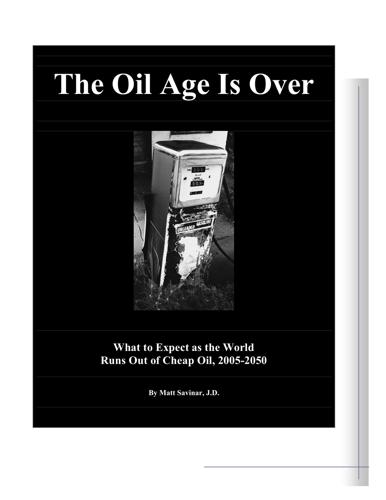
The Oil Age Is Over: What to Expect as the World Runs Out of Cheap Oil, 2005-2050
by
Matt Savinar
Published 2 Jan 2004
We need to create over 250,000 new jobs per month just to keep up with population growth. Creating new jobs is essentially impossible now that oil production is peaking. Without an excess supply of energy, the economy cannot grow, and the necessary number of jobs cannot be consistently created. E. Blackouts The rolling blackouts experienced in California during fall of 2000, the massive East Coast blackout of August 2003 and the various other massive blackouts that occurred throughout the world during late summer of 2003 are simply a sign of things to come. F. Reduced Food and Chemical Production World grain production has dropped every year since 1996-1997.34 World wheat production has dropped every year since 1997-1998.
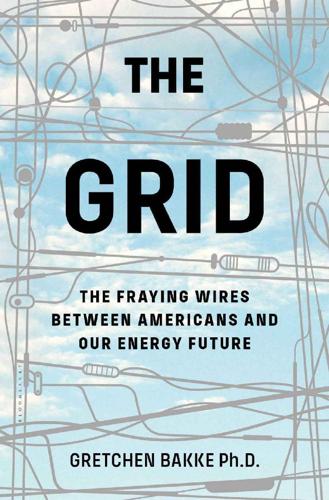
The Grid: The Fraying Wires Between Americans and Our Energy Future
by
Gretchen Bakke
Published 25 Jul 2016
In California these consequences included the near bankruptcy of its two largest investor-owned utilities, the consumption of an $8 billion state budget surplus, and almost nine months in 2000–2001 of uncertain electricity supply as power plants were taken offline for “repairs” or the lines necessary to carry essential current between the northern and southern halves of the state were “overbooked.” As rolling blackouts became the rule, many new economy businesses, like Apple and Cisco Systems, as well as other electricity-dependent undertakings such as military bases and prisons, began to think about ways they might detach themselves from grid-provided power. Institutional grid defection in the wake of 2000–2001 became a sign not of radicalism but the inverse: wise organizations engineered ways to use the grid as a backup power system rather than as something upon which they must rely regardless of how poorly it was managed or how sporadically its product was delivered.
…
See also individual outages causes of, here computer-related, here consumers’ attitudes toward, here cost of, here on distribution systems, here duration of, here impact of, here, here increase in, here and movement of electricity, here non-storm-related, here and resiliency, here rolling blackouts, here storm-related, here, here in transmission systems, here tree-related, here and underfunded distribution networks, here power plants, here. See also specific plants and types of plants efficiency of, here, here, here environmental regulations and cost of building, here failures of, here first large-scale, here, here grow-and-build strategy, here, here money owed on, here for renewable sources, here reserved for peak demand, here, here virtual, here predictability of demand, here of electricity, here of generation from renewables, here price of electricity in 1970s, here and amount of electricity used, here and conservation of power, here and energy trading, here and environmental movement, here fixed, here in Germany, here in Hawaii, here for industry vs. residential/commercial customers, here and money made by company, here in monopsonies, here, here for off-peak vs. peak power, here and oil embargo of 1973, here promotional rates, here and rooftop solar systems, here surcharge for renewables, here tiered rate structures, here and use of smart meters, here and utility death spiral, here private grids, here, here.
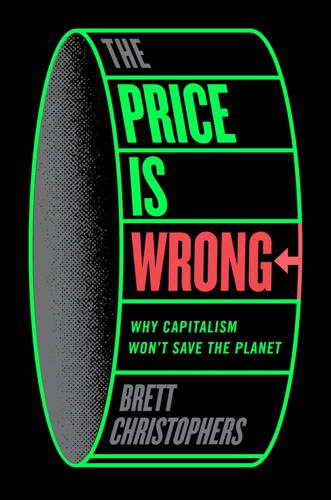
The Price Is Wrong: Why Capitalism Won't Save the Planet
by
Brett Christophers
Published 12 Mar 2024
And whereas in Bangladesh, India and Pakistan the nub of the problem would be surging demand, in Texas the core problem was constrained supply: while demand, for heating, did surge, the challenge of meeting that increased demand became a crisis principally because the state’s generation infrastructure failed it. At one point, almost half the state’s generating capacity was offline, literally frozen. Rolling blackouts became, for millions of homes and businesses, outages lasting multiple days, leading directly and indirectly to the loss of life and livelihoods. Initially, in what is a largely politically conservative state, the finger was pointed at its vast network of wind farms. It was these, it was said, that had failed, as turbines lacking the heating kits that come with plants installed in colder climes iced up; for climate naysayers, this was yet more evidence of the folly of (alleged) excessively hasty decarbonization.
…
By September, power restrictions had already spread to more than twenty provinces, as unseasonal weather – cold in the north, warm in the south – inflated electricity demand further and pushed grids ‘to the brink’. Shortages were especially severe in the north-east, where whole communities endured rolling blackouts.18 In a number of important respects, China’s experience foreshadowed much of what we would see in the emerging energy crisis elsewhere in the world. One was the particular significance of interactions between fuel markets and electricity markets in the shaping of the crisis. In Europe, as we shall see, the fuel in question would mainly be natural gas, but in China it was coal.
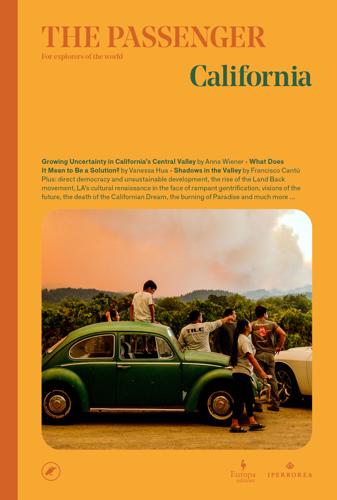
The Passenger
by
AA.VV.
Published 23 May 2022
Crime rates are already high and rising, Californian public schools do not score highly in national rankings, and during the summer there are regular power outages. The company in charge of the electrical grid is Pacific Gas and Electric, made infamous by the story of Erin Brockovich. It is one of the most corrupt and inefficient utilities in the country. Rolling blackouts are meant to keep strong winds from knocking down towers in forests and starting new wildfires that would make the air even less breathable. In spite of these precautions – if we can call them that – the company filed for bankruptcy in 2019 because of the huge numbers of compensation payments due to victims of fires caused by the company’s negligence.
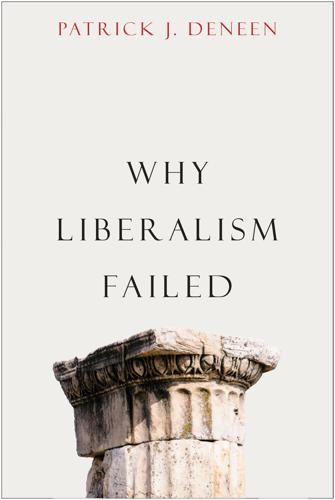
Why Liberalism Failed
by
Patrick J. Deneen
Published 9 Jan 2018
Liberals are right to fear this eventuality, but persist in willful obliviousness of their own complicity in the birth of the illiberal progeny of the liberal order itself. Conclusion: Liberty after Liberalism LIBERALISM has failed because liberalism has succeeded. As it becomes fully itself, it generates endemic pathologies more rapidly and pervasively than it is able to produce Band-aids and veils to cover them. The result is the systemic rolling blackouts in electoral politics, governance, and economics, the loss of confidence and even belief in legitimacy among the citizenry, that accumulate not as separable and discrete problems to be solved within the liberal frame but as deeply interconnected crises of legitimacy and a portent of liberalism’s end times.
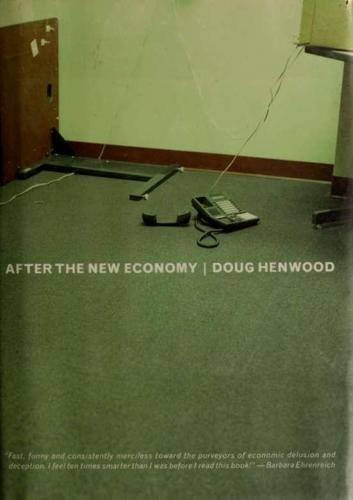
After the New Economy: The Binge . . . And the Hangover That Won't Go Away
by
Doug Henwood
Published 9 May 2005
In December 2000, Senator Gramm helped push a bill through Congress that deregulated trading in energy. Enron's electricity trading business swelled, and some of the firm's only real profits were made. Without owning a single California power plant, Enron came to control the state's market. Rolling blackouts became the norm, prices skyrocketed, and the state racked up billions in debt. Phil Gramm blamed environmentalists for the crisis. Finally, price controls were imposed and the bubble burst. Deprived of its cash cow, Enron hit the rocks a few months later. But of course the biggest profiteers were the synergists themselves, the investment banks and venture capitaHsts (VCs).
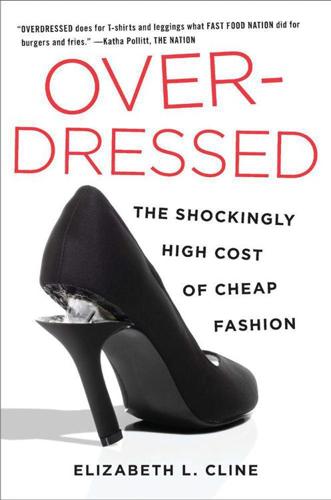
Overdressed: The Shockingly High Cost of Cheap Fashion
by
Elizabeth L. Cline
Published 13 Jun 2012
“I was going to have to give up my house and move back in with my mom because there was just no way I was going to be able to make ends meet,” Kuki recalls. “I owed too much money to the grocery store, so they weren’t going to give me food anymore.” Many of the workers at Alta Gracia had amassed debts like these before the factory reopened. Early in my visit with Kuki, a rolling blackout snuffed out the electricity in the neighborhood; we were talking by candlelight. Kuki’s two-year-old promptly crawled onto the table and stuck his finger into the candle. When everyone calmed back down, I asked Kuki, carefully, about the elephant in the room. Her livelihood depended on American consumers buying the clothes that Alta Gracia makes.
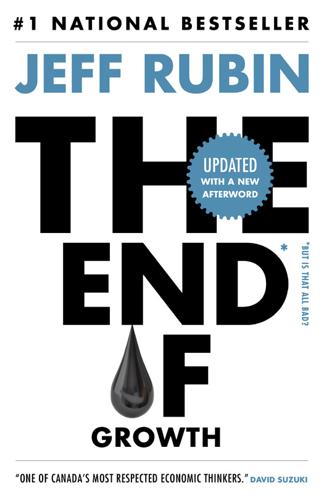
The End of Growth
by
Jeff Rubin
Published 2 Sep 2013
At the same time, China’s industries and consumers are living under a subsidized umbrella of false power costs. Eventually, resource scarcity will assert itself. Both China and India will have to ration power, which will put the brakes on economic activity. That process has already started with the rolling blackouts that are now a permanent feature of the economic landscape in those countries. Few climate change experts take such economic considerations into account when making their big-picture forecasts. The IPCC, for example, released a series of models for the future of global carbon emissions in its benchmark 2007 report, presenting no fewer than forty different scenarios.
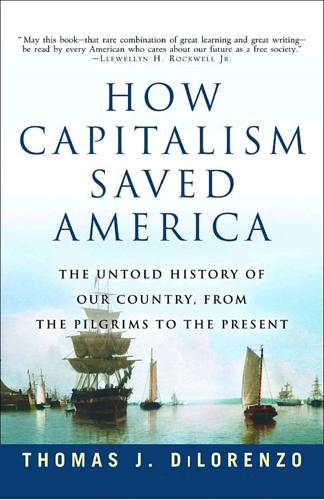
How Capitalism Saved America: The Untold History of Our Country, From the Pilgrims to the Present
by
Thomas J. Dilorenzo
Published 9 Aug 2004
Sure enough, in the late 1990s government officials created yet another energy crisis with their foolish regulatory policies. And once again they wrongly blamed the problem on deregulation. The electric power crisis that plagued California beginning in the late 1990s is commonly cited in calls for further government regulation. After all, the anticapitalists say, California began experiencing rolling blackouts because in 1996 the state government passed a law deregulating the electricity industry. But that 1996 law deregulated only the wholesale price of electricity purchased by electric power distributors within the state; it maintained price controls on retail prices and applied even more onerous regulations to the rest of the industry.
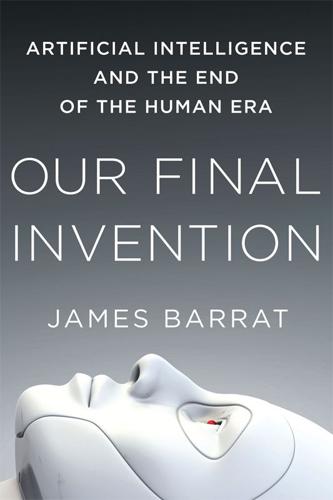
Our Final Invention: Artificial Intelligence and the End of the Human Era
by
James Barrat
Published 30 Sep 2013
In 2000, by overloading the line with subscribers during a heat wave, they created “phantom” or fake congestion, and a bottleneck in energy delivery. Prices skyrocketed, and electricity became critically scarce. California officials supplied energy to some regions while darkening others, a practice called “rolling blackouts.” The blackouts caused no known deaths but plenty of fear, as families became trapped in elevators, and streets were lit only by headlights. Apple, Cisco, and other corporations were forced to shut down, at a loss of millions of dollars. But Enron made millions. During the blackouts one trader was recorded saying, “Just cut ’em off.

Infinite Detail
by
Tim Maughan
Published 1 Apr 2019
There was talk of all-out war between Anon and a ’clave of patriotic Chinese hackers, both sides allegedly fighting proxy battles for corporate interests, the CIA, Google, or space aliens—take your pick. New viruses and DDoS strategies, bot armies a billion zombie web-cam units strong. Half of Chicago drowned in sewage when something disrupted the water systems there, reports of rolling blackouts across Beijing and Rio. The White House threatening to throw the kill switch. Then that footage was leaked, the clearing of the homeless camp near Google’s HQ in California. Next thing, their campus in Mountain View was swamped by thousands of protestors. The leaked video had brought them down, but it felt like most of them had some other reason to be there: that unshakable feeling that they’d been fucked over, that they’d been denied something, that they’d had too much control taken away from them and put into the hands of unseen algorithms.
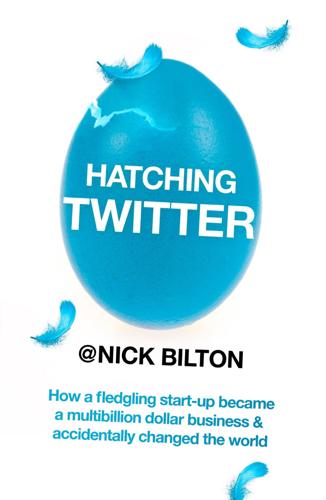
Hatching Twitter
by
Nick Bilton
Published 5 Nov 2013
During the 2008 conventions, the 1.4 million people who were actively using Twitter sent more than 365,000 tweets from both the Republican and Democratic conventions. Such numbers showed that the elections were important, Ev agreed, but they weren’t more important than growing the tiny team of twenty-two employees and getting the site working properly. Like rolling blackouts in a country already starved of electricity, the site had continued to go off-line daily. The Fail Whale took over the site almost hourly. Some outages lasted a few minutes, others more than a day. The fire hose, the name given to the stream of all the tweets coming through the service for third-party applications, would often turn off.
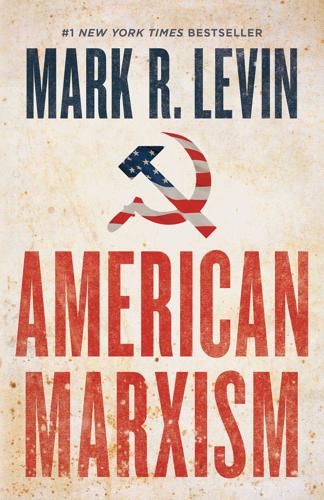
American Marxism
by
Mark R. Levin
Published 12 Jul 2021
America’s largest state, California, has been an incubator for far-left environmental experiments. During the summer of 2020, California’s climate policies resulted in a widespread blackout. Millions of its citizens had their electrical power cut off in the midst of a heat wave. Michael Shellenberger at Forbes explains: “[T]he underlying reasons that California… experience[ed] rolling black-outs for the second time in less than a year stem[s] from the state’s climate policies….”… “California saw its electricity prices rise six times more than the rest of the United States from 2011 to 2019, due to its huge expansion of renewables….”85 “Even though the cost of solar panels declined dramatically from 2011 and 2019,” writes Shellenberger, “their unreliable and weather-dependent nature meant that they imposed large new costs in the form of storage and transmissions to keep electricity reliable.
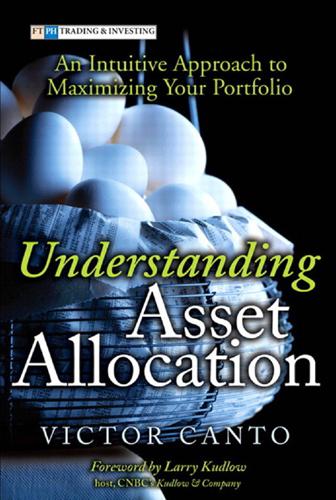
Understanding Asset Allocation: An Intuitive Approach to Maximizing Your Portfolio
by
Victor A. Canto
Published 2 Jan 2005
A few years back, temperatures unexpectedly rose in Southern California. As the heat intensified, people turned on their air conditioners. Combined with the extra energy needed to keep refrigerators cool, the added demand for power outpaced the suppliers’ ability to suppliers to deliver. The result was the first in what became a series of rolling blackouts in Southern California. 194 UNDERSTANDING ASSET ALLOCATION At the time, I asked: What will the impact of the energy crisis be? How will California companies be affected? I analyzed the situation from the viewpoint that California is an integrated economy and represents one of the largest world economies.

The New Harvest: Agricultural Innovation in Africa
by
Calestous Juma
Published 27 May 2017
In Africa, governments can learn from the Chinese experience and ensure that their road programs give adequate priority to lower-quality and rural feeder roads. Energy To enhance agricultural development and to make progress in value-added agro-processing, Africa needs better and more consistent sources of energy. Rolling blackouts are routine in 124 THE NEW HARVEST much of western, central, and eastern Africa, and much of Africa’s power generation and transmission infrastructure needs repair or replacement. What Africa lacks in adequate deployment, however, it makes up for in potential. Africa is endowed with hydro, oil, natural gas, solar, geothermal, coal, and other resources vast enough to meet all its energy needs.

The Premonition: A Pandemic Story
by
Michael Lewis
Published 3 May 2021
It also enabled him to answer the complicated questions that now routinely found him, most of which had to do with preventing some national disaster. The Federal Reserve Bank of New York just then was using him to help figure out how failure in one corner of the U.S. financial system might ripple into others. The Department of Energy wanted him to determine if a small glitch in the electric grid might trigger rolling blackouts across the country. Once you stopped talking about people and started talking about, say, money flows, the links between the little dots on the screen and the real world became harder for most people to follow. But not for him. “This is the crux of science,” he’d say with enthusiasm. “All science is modeling.

Nation-Building: Beyond Afghanistan and Iraq
by
Francis Fukuyama
Published 22 Dec 2005
Before the invasion in March 2003, Iraq produced 4,500 megawatts of electricity on demand.43 At the end of the occupation, Iraq’s electricity generation hovered at 4,000 megawatts, which equals less than 9 hours of power a day for most Baghdad homes.44 Nearly 2 years later, the situation has not improved, and Iraqis are only receiving roughly 3,600 megawatts of electricity.45 This electricity shortage had a particularly devastating political impact for the occupation. First, the absence of any proper means of national communication left the coalition incapable of letting citizens know when they had power. Even in the well-off neighborhoods, there were only 12 hours of electricity per day, with rolling black-outs.46 Second, Iraqi expectations for the coalition to restore such basic infrastructure as the power grid far exceeded the contractors’ capacity for repairs. Third, the power grids were highly susceptible to sabotage, and the paucity of security forces for this type of protection clearly took its toll as daily bombings of power lines were a major setback to the larger task of turning on the lights.

Choked: Life and Breath in the Age of Air Pollution
by
Beth Gardiner
Published 18 Apr 2019
Her adversary was the man many saw as the power behind Bush’s throne: Vice President Dick Cheney, whose many responsibilities included heading the White House’s Energy Task Force. In the administration’s first months, before 9/11 upended its agenda, a new national energy policy was a top White House priority. California was suffering through rolling blackouts and electricity price spikes, and Cheney’s team was crystal clear on why. While more neutral observers attributed the crisis to deregulation and market manipulation, the task force blamed the Clean Air Act. “I said to them, ‘Show me permits that are being held up’” by air quality rules, Whitman recalls.
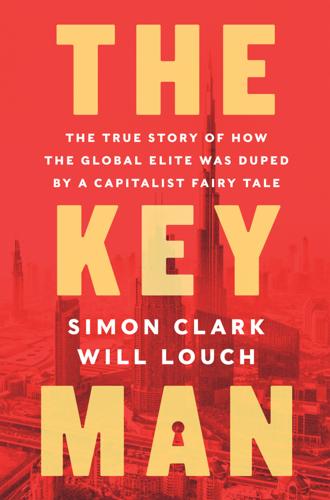
The Key Man: The True Story of How the Global Elite Was Duped by a Capitalist Fairy Tale
by
Simon Clark
and
Will Louch
Published 14 Jul 2021
The disturbances would have scared away foreign investors unused to such hostilities, but Tabish was born and bred in Karachi and he knew that in Pakistan’s highly emotive and vocal public life politicians often exaggerated for effect, and he was determined that the violent threats wouldn’t stop him. The reputation of Abraaj was at stake, and walking away would have been too humiliating. Arif agreed to complete the takeover of Karachi Electric in May 2009. Now Tabish could really get to work. It still seemed like an impossible job. Rolling blackouts pushed people onto the streets once more. From the slums to the business district, rampaging gangs left a trail of carnage in their wake. They threw stones and chanted offensive slogans at the power company that had let them down. Protesters burned tires and blockaded busy streets. The rioting was worst in poorer areas like Orangi, a former slum, where the unbearable summer heat drove residents crazy.

Coastal California
by
Lonely Planet
Reacting against the banal complacency of post-WWII suburbia, 1950s beatniks and 1960s hippies flocked to California spreading poetry and free love, and in the ’70s, Gay Pride activists kept the social revolution going. The internet revolution, spurred by Silicon Valley near San Francisco, rewired the economy and led to a 1990s boom in overspeculated stocks. When the bubble burst in 2000, it plunged the state’s economy into chaos, especially when deregulation of the electricity market led to rolling blackouts and sky-high power bills. In the new millennium, meltdowns on Wall Street and the lingering US recession have caused a staggering financial crisis that California has yet to bounce back from. Ballistic population growth, pollution and traffic are other vexing issues. Meanwhile, the need for public education and prison reform builds, and the conundrum of illegal immigration from Mexico, which fills a critical labor shortage, remains unsolved.
…
Many reaped huge overnight profits from start-ups, fueled by misplaced optimism, only to crash with equal velocity at the turn of the millennium. No place in America was more affected by the demise of the dot-coms in 2000 than California. That same year also brought widespread power shortages and rolling blackouts to California, which were caused by Enron’s illegal manipulation of markets. But before the truth came out, Republican malcontents fingered then-Governor Gray Davis and called for a special recall election that ousted him. Enter Arnold Schwarzenegger – Californians will always forgive a movie star more easily than a politician.
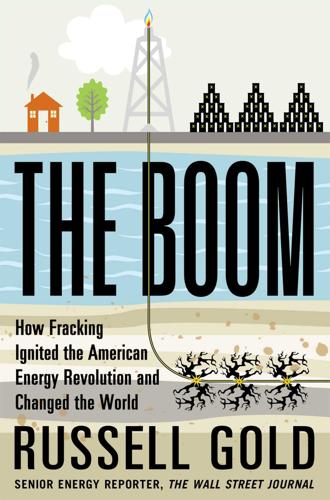
The Boom: How Fracking Ignited the American Energy Revolution and Changed the World
by
Russell Gold
Published 7 Apr 2014
In the meantime, El Paso traders began to do what the state feared: control gas supply and drive up market prices. The California energy meltdown of 2000 and 2001 is remembered largely as a crisis in the electricity market. Wholesale power prices spiked. There were more than one hundred electrical emergencies declared and a handful of rolling blackouts. But the power crisis was intertwined with problems in the natural gas market. In March 2000, when El Paso Merchant took control of the pipeline contracts, gas at the California border cost $2.84 per thousand cubic feet. By December, the price had risen nearly tenfold, to $25.08. Briefly, prices spiked as high as $60.When prices neared their peak, in November, El Paso Merchant turned up the flow of gas into the state.
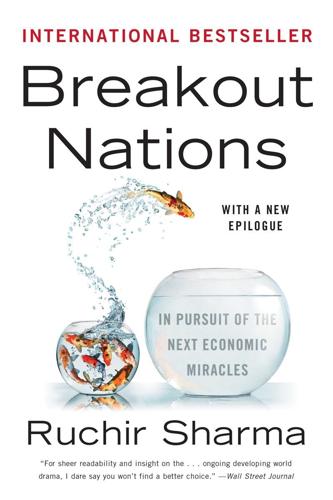
Breakout Nations: In Pursuit of the Next Economic Miracles
by
Ruchir Sharma
Published 8 Apr 2012
Botha are now owned by the ANC government, and are still poorly managed. The phone company, Telkom, is owned by the government—little surprise, then, that only 14 percent of South Africans have access to the Internet. The same goes for the electric utility, Eskom, which manages a grid plagued by rolling blackouts. The rail system is run by Transnet, which has been negotiating with private partners for five years to solve bottlenecks in the network that have prevented South Africa from raising iron ore exports even in the midst of a global boom in demand. State ownership explains why the national flagship, South African Airways, has so little competition, and why there are no cheap flights to South Africa, which dampens tourism and business opportunities.
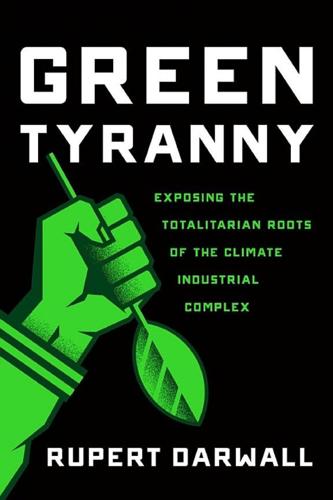
Green Tyranny: Exposing the Totalitarian Roots of the Climate Industrial Complex
by
Rupert Darwall
Published 2 Oct 2017
In the late 1960s, California’s political and intellectual class became increasingly influenced by environmentalist thinkers such as the Norwegian Arne Næss, the German Fritz Schumacher, and the Frankfurt School’s Herbert Marcuse. From the mid-1970s, the Golden State led the U.S. in turning green ideology in a fight against reality, with disastrous consequences. Rising demand and falling generating capacity, exacerbated by retail price caps, led to grid instability and rolling blackouts in 2000 and 2001, contributing to the 2003 recall of Governor Gray Davis. Although the blackouts ended, non–weather dependent generating capacity continued to fall, electricity prices kept rising, as did the amount of wind and solar on the grid. By 2014, California was importing one-third of its electricity.

Our Enemies Will Vanish: The Russian Invasion and Ukraine's War of Independence
by
Yaroslav Trofimov
Published 9 Jan 2024
“About the civilians, we are not gloating, we are compassionate, we love everyone, but we have been pushed to do this, we have no choice, they want to exterminate us and we must react,” the show’s host, Olga Skabeeva, concluded with a grin. Ukrainian repair teams worked around the clock after each wave of strikes, and the apocalyptic scenario forecast by Gurulyov never materialized. But rolling blackouts became a feature of Ukraine’s everyday life that fall. People woke up to wash, cook, and charge their devices in the middle of the night, during the few hours when their apartments had electricity. Generators appeared on sidewalks to power restaurants and shops. Special blackout menus offered meals that could be put together without electricity.
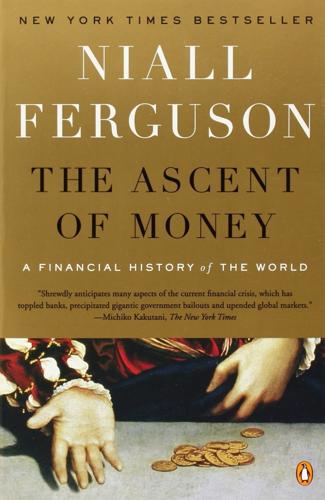
The Ascent of Money: A Financial History of the World
by
Niall Ferguson
Published 13 Nov 2007
Another exchange concerns ‘all the money you guys stole from those poor grand-mothers of California’. The results of such machinations were not only the higher prices Enron wanted, but also blackouts for consumers. In the space of just six months after the deregulation law came into effect, California experienced no fewer than thirty-eight rolling blackouts. (In another tape, traders watching television reports of Californian forest fires shout ‘Burn, baby, burn!’ as electricity pylons buckle and fall.) Even with such market-rigging, the company’s stated assets and profits were vastly inflated, while its debts and losses were concealed in so-called special-purpose entities (SPEs) which were not included in the company’s consolidated statements.

The Hundred Years' War on Palestine: A History of Settler Colonialism and Resistance, 1917–2017
by
Rashid Khalidi
Published 28 Jan 2020
It also provided indispensable international cover for the open warfare that was to come. Israel was able to exploit the deep division among Palestinians and Gaza’s isolation to launch three savage air and ground assaults on the strip that began in 2008 and continued in 2012 and 2014, leaving large swaths of its cities and refugee camps in rubble and struggling with rolling blackouts and contaminated water.26 Some neighborhoods, such as Shuja‘iyya and parts of Rafah, suffered extraordinary levels of destruction. The casualty figures tell only part of the story, although they are revealing. In these three major attacks, 3,804 Palestinians were killed, of them almost one thousand minors.
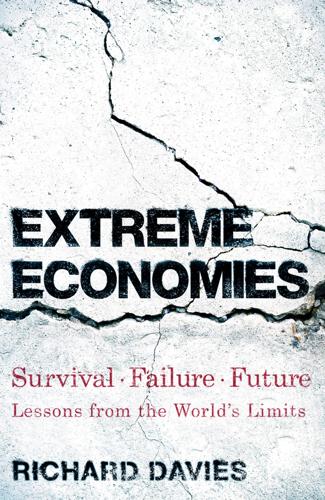
Extreme Economies: Survival, Failure, Future – Lessons From the World’s Limits
by
Richard Davies
Published 4 Sep 2019
Home to 10 million people and located on the bank of the world’s most reliable river, it lacks clean water, irrigation and proper sewerage. In a city founded with a promise of lucrative free trade and with the potential for a manufacturing hub driven by cheap hydroelectric power, the failure of government means scant export revenue, punishingly expensive imports, a crumbling electricity grid and rolling blackouts. At the modern river port I meet Adolf Kitete and his friend Papy, a pair of sharply dressed traders who operate a clever scheme they call ‘parity’ when conditions are right. ‘When there are shortages or political unrest in Kinshasa, prices jump,’ explains Mr Kitete. He holds up a small bottle of water as an example: ‘This could cost 4,000 francs.’
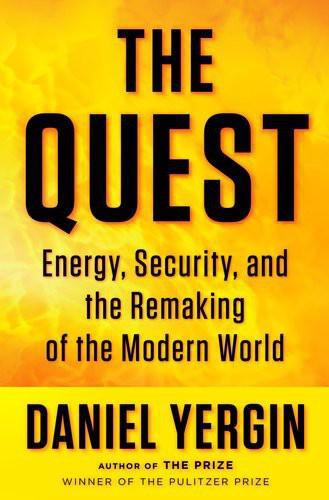
The Quest: Energy, Security, and the Remaking of the Modern World
by
Daniel Yergin
Published 14 May 2011
In the days that followed, explosions damaged the plants, radiation was released, and severe meltdowns of nuclear rods occurred. The result was the worst nuclear accident since the explosion at the Chernobyl nuclear plant in Soviet Ukraine a quarter century earlier. The Fukushima accident, compounded by damage to other electric generating plants in the area, led to power shortages, forcing rolling blackouts that demonstrated the vulnerability of modern society to a sudden shortage of energy supply. The effects were not limited to one country. The loss of industrial production in Japan disrupted global supply chains, halting automobile and electronics production in North America and Europe, and hitting the global economy.
…
They were, he said, “pirate generators” out for “plunder.” 12 This was not an environment conducive to collaboration and solutions. The crisis worsened. Spot prices for electricity were, on average, ten times what they had been a year earlier. State regulators began to ration power physically, which meant rolling blackouts. Meanwhile, as wholesale power prices went up, the financial positions of the states’ utilities became even more dire. Because of that iron curtain between the deregulated wholesale market and the regulated retail side, utilities were buying wholesale power for as much as $600 per kilowatt hour but were able to sell it to retail customers at a regulated rate of only about $60 per kilowatt hour.
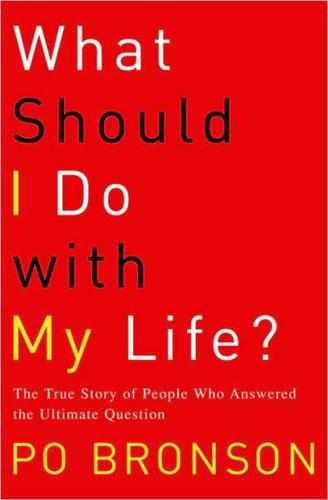
What Should I Do With My Life?
by
Po Bronson
Published 2 Jan 2001
Jumping into the solar energy business doesn’t make economic sense. Or, I should say, being in the solar business means counting on a supply of clients who willingly disregard the bottom line. Stephen knew that, and he was in no position to fight those economics. When the California energy crisis struck, he thought this was his chance. Rolling blackouts left neighborhoods without electricity, and gasoline prices shot up fifty cents a gallon. Independent service operators were asked to testify before Congress. News of the crisis dominated the front pages. The public was suddenly interested in alternative energy sources. The numbers tilted a little in his direction.
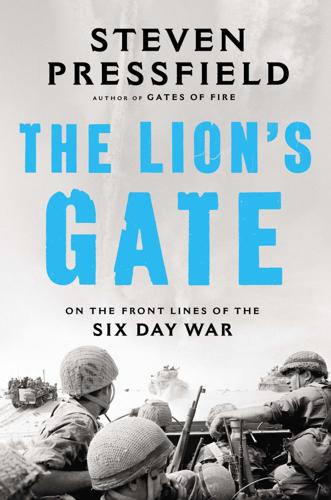
The Lion's Gate: On the Front Lines of the Six Day War
by
Steven Pressfield
Published 5 May 2014
Here is what we see: The sky, which had been lit up like daylight by the firing of the Egyptian artillery, now goes black, one section at a time. I’m standing on a rise with the other pilots, copilots, and aircrew. As we watch, the right side of the line goes dark; then the middle; then the whole line. It’s a rolling blackout, like a city when the power fails in one neighborhood after another. The only lights remaining on the battlefield are the searchlights of our IDF tanks, darting this way and that like the site of a movie premiere in Hollywood. Arik gives me a kiss. “Cheetah, I love you!” He needs no report from his commanders to know how the battle is going. 35.
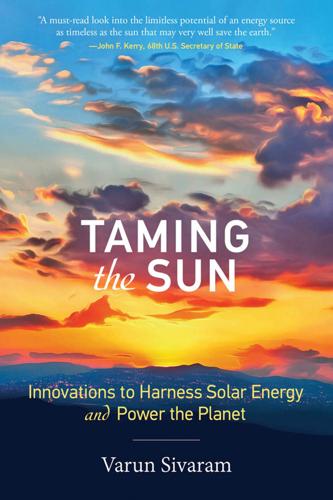
Taming the Sun: Innovations to Harness Solar Energy and Power the Planet
by
Varun Sivaram
Published 2 Mar 2018
Others, including France, which does not share Germany’s obsession with shutting down nuclear plants, are not so sure. Many argue that, by paying reliable plants to sit around rather than actually producing power, capacity markets raise customer prices. Just as many others counter that this approach is a sort of insurance that is well worth the investment, lest rolling blackouts and surging prices cost customers even more dearly. Setting this stale debate aside, other, innovative options could modernize power markets, accommodate a rising share of renewable energy, and fund a strong foundation of flexible-base power. The first priority is minimizing the amount of expensive reserves needed to accommodate renewable energy unpredictability.
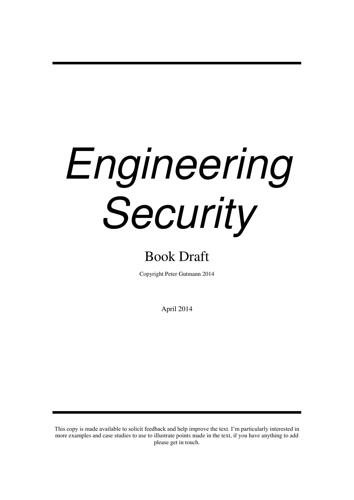
Engineering Security
by
Peter Gutmann
While it could be argued that performing no blanking at all wouldn’t be such a bad approach since it might help discourage users from doing online banking in random Internet cafés, in practice we probably need to provide at least some level of comfort blanking to overcome users’ deeply-ingrained conditioning that a visible password isn’t protected while a blanked one is (this fallacy was examined in a “Use of Visual Cues” on page 542). Figure 154: Rolling password blackout Apple usability guru Bruce Tognazzini has come up with a nice way to handle this using a rolling password blackout. With a rolling blackout the entered password characters are slowly faded out so that the last two or three characters are still visible to some degree, but after that point they’ve been faded/masked out to the usual illegible form as depicted in Figure 154. As reported in the user evaluation results for this design “users were able to comfortably and accurately detect errors, while eavesdropping failed” [172].
…
This type of password handling, which only became possible with the more widespread use of graphical interfaces in the 1980s and 1990s, is a nice trade-off between user comfort and security functionality. 590 Passwords A somewhat simplified variant of this is used in Nokia cell-phones, Blackberries, and the iPhone (although in the latter case it may have been motivated mostly by the somewhat awkward touch-screen keyboard) which display the last digit or character entered in a password/PIN-entry field while blanking the remainder of the values. The rolling blackout design is somewhat nicer because it provides more surrounding context than just a single letter or digit. If you’re a mobile application developer, remember to explicitly disable auto-complete for fields where users enter sensitive data like passwords. Having an attacker enter a few random characters that your mobile device then helpfully corrects to your secret password isn’t a good thing.
…
This is already done by many add-on password managers, and for people who don’t use these there are various browser plugins that will display typed passwords, both on web pages and for the web browser’s master password if it uses one (there has been a change request active for over eight years to add this to Firefox, but the response from the developers is that users who want this should type their passwords in somewhere else and then cut and paste them across [346]). See the discussion in “Password Manager Browser Plugins” on page 781 about the perceived lack of control created by password interfaces that hide the users own passwords from them. 616 Passwords If you do display the passwords to their owners, consider using a rolling blackout of the kind described in “Password Display” on page 587, or at least add a handler for the application losing focus so that you can blank the password (this is one case where blanking is justified, since if the user isn’t currently actively using the application then it’s unlikely that they need to deal with the password).
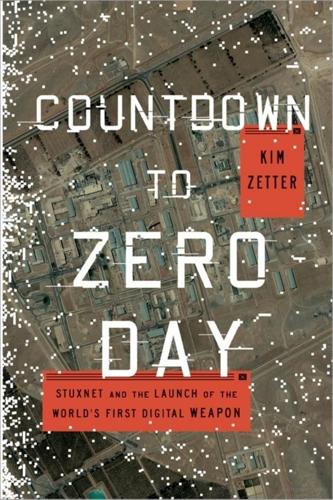
Countdown to Zero Day: Stuxnet and the Launch of the World's First Digital Weapon
by
Kim Zetter
Published 11 Nov 2014
The red-team hackers dropped marker files onto the systems to plant a virtual flag, proving they were there, and also created a number of simulated attacks showing how they could have seized control of power and communications networks in Oahu, Los Angeles, Chicago, and Washington, DC. Had they wanted to, they could have seized control of a system used to command hundreds of thousands of troops or set up “rolling blackouts and other activities that would cause social unrest,” according to Lt. Gen. John H. Campbell, a now-retired Air Force general who headed the Pentagon’s information operations at one time. The exercise “scared the hell out of a lot of folks,” Campbell later said, “because the implications of what this team had been able to do were pretty far-reaching.”7 Afterward, when military leaders were briefed about the exercise, they assumed the red team had used classified tools and techniques for the attack and were surprised to learn that the NSA had used the same techniques any teenage hacker would use.
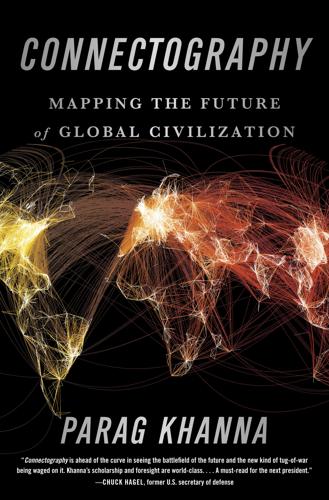
Connectography: Mapping the Future of Global Civilization
by
Parag Khanna
Published 18 Apr 2016
The Mekong River with Thailand and the Annamite mountain range with Vietnam are natural boundaries, but as rail networks and power lines from giant foreign-financed hydroelectric stations crisscross this once isolated sliver of a nation, the country will be a crucial electricity supplier to Thailand, which is desperate to avoid the rolling blackouts of the past decade as it struggles to pump out nearly two million cars per year for almost all the major auto manufacturers. Once the Kunming railway crosses Laos and reaches Bangkok, it will smoothly connect to another high-speed linkage to Kuala Lumpur and Singapore, or toward Myanmar, to both Yangon and its port so that it can serve as the conduit for transit from the Andaman Sea back through Thailand to China.
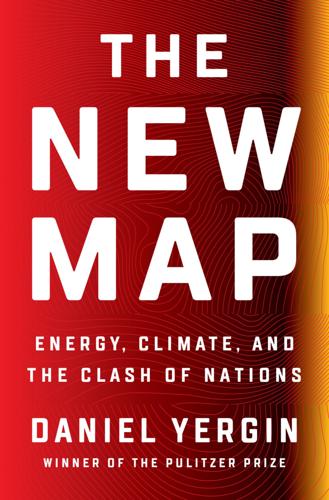
The New Map: Energy, Climate, and the Clash of Nations
by
Daniel Yergin
Published 14 Sep 2020
Transport minister Nitin Gadkari declared that he would “bulldoze” automakers into making electric vehicles. He was, as he put it, “crystal clear” as to why—urban pollution and the economic strain of the country’s importing 85 percent of its oil.23 Others, however, asked how a country that is constantly short of electric power and suffers hours of rolling blackouts—and depends on coal for most of its power—can switch to EVs. Responding to the clamor in India for electric vehicles, India’s petroleum minister, Dharmendra Pradhan, described the enthusiasm about electric cars as a “fashion.” He compared it to the excitement generated by Alia Bhatt, an alluring young Bollywood film actress.
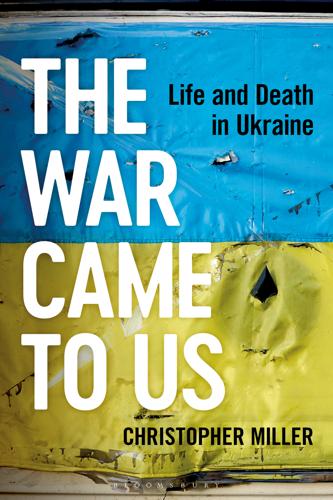
The War Came to Us: Life and Death in Ukraine
by
Christopher Miller
Published 17 Jul 2023
Camping equipment became immediately popular. Gorgany, an outdoor store down the street from my Kyiv apartment, overflowed with people. Sleeping bags, camping stoves, and headlamps flew off the shelves. On the day I visited, the manager told me it was their biggest sales day ever. Authorities announced rolling blackouts to conserve energy. Everyone had at least two four-hour blocks of time each day without power. Some districts, though, were out of power for days. The streets of the capital were darker than I’d ever seen them. The authorities kept the street lights off after sundown to conserve energy but also so that Russian planes and drones wouldn’t be able to make out potential targets on the ground from overhead.
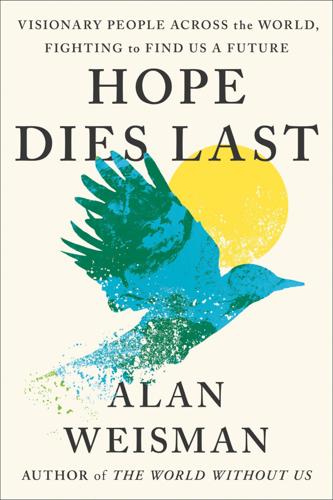
Hope Dies Last: Visionary People Across the World, Fighting to Find Us a Future
by
Alan Weisman
Published 21 Apr 2025
In its rush to afford the Delta Plan, Bangladesh had authorized 20 new coal-fired plants, but had to cancel half because fewer lenders were willing to finance coal. With war in Ukraine, fuel costs for its new liquefied natural gas plants had soared. LNG container ships from Qatar were turning around in the Bay of Bengal, eating the penalty for defaulting on Bangladesh contracts because they could make much more in Europe. Rolling blackouts became constant. “My electricity went out five times yesterday,” says Salma, re-pinning her lavender hijab. “Each time it was gone for an hour.” The previous weekend, the entire nation plunged into a three-day blackout. “I have a generator, so I can get through that. But others…” Each new outage brought more heatstrokes.

Baghdad at Sunrise: A Brigade Commander's War in Iraq
by
Peter R. Mansoor
,
Donald Kagan
and
Frederick Kagan
Published 31 Aug 2009
Regrettably, this lull in insurgent activity proved illusory when cpa failed to bring the real leaders of the Sunni community into negotiations, ensuring their continuing resistance to the creation of an effective Iraqi government. Reconstruction of Iraqi power generation facilities progressed with agonizing slowness. Power output was still no better than prewar levels, which caused rolling blackouts throughout Baghdad and across Iraq. To improve the situation, the Army Corps of Engineers decided to import new electrical generators to augment the existing, antiquated capability. Each of these massive, three hundred–ton machines cost thirty million dollars and could produce 157 megawatts of power, enough to add thirty minutes of power daily to the entire city of Baghdad.⁹ The first one arrived in late January 2004.

The Ripple Effect: The Fate of Fresh Water in the Twenty-First Century
by
Alex Prud'Homme
Published 6 Jun 2011
But the rainy summers of 2003 and 2004 caused so many CSOs that New York waters were declared unhealthy, and beaches were repeatedly closed. The swimming leg of a triathlon was canceled due to the pollution from CSOs. Most notorious was the sultry afternoon of August 14, 2003, when a massive power outage—caused by surging electricity demand, computer malfunctions, and power lines snagged in trees in Ohio—led to a rolling blackout that knocked out electricity to roughly 45 million people in the Northeastern and Midwestern United States, and another 10 million in Canada. In New York, most of the city’s wastewater treatment plants used backup generators to keep functioning. But at two plants, the generators did not work, and 30 million gallons of untreated human waste was illegally discharged into the city’s waters.
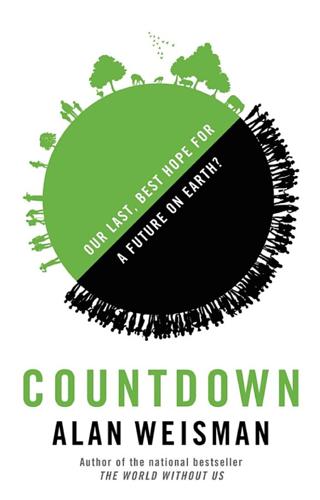
Countdown: Our Last, Best Hope for a Future on Earth?
by
Alan Weisman
Published 23 Sep 2013
Everyone is back: men in white kurtis and prayer caps; hijab’d women brilliant as tropical birdlife, wrapped in multihued loose pants and tunics called salwar kameez; other women in black chadors, even transvestites in chadors, all threading their way through the stalled traffic, buying provisions and tea. Since 10:00 a.m., that traffic has gone from mere paralysis to pandemonium, as Lyari’s stoplights are out for the next three hours. All but the most privileged parts of Karachi are subject to load-shedding—daily rolling blackouts—because the city can’t possibly keep up with demand. There were fewer than a half-million people here in 1947. Today’s 21 million is a forty-two-fold increase. No one could have prepared for this. Three days earlier, when the grenade attacks began, everyone stayed hidden until long after the explosions ended.

Ghost Train to the Eastern Star: On the Tracks of the Great Railway Bazaar
by
Paul Theroux
Published 9 Sep 2008
Because of that, TCS provided a gym, a cafeteria and a resident doctor. And all employees commuted to work by the company shuttle service, which stopped at various hubs in the city. ‘Suppose there’s a power cut?’ I asked. Such things were common, and barely concealed under the euphemisms ‘brownout’, ‘rolling blackout’ or ‘load shedding’. ‘What happens then?’ ‘Last July we had power cuts. Ninety-three centimetres of rain in sixteen hours.’ That was more than three feet of rain in a little more than half a day! But Mr Randeria was smiling. ‘We had two hundred per cent redundancy backup. I’ll show you.’ He took me to a towering building at the rear of the complex.
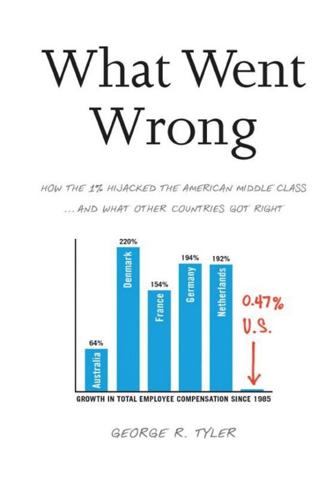
What Went Wrong: How the 1% Hijacked the American Middle Class . . . And What Other Countries Got Right
by
George R. Tyler
Published 15 Jul 2013
It was a textbook consumer squeeze: power firms maliciously closed 13 gigawatts of generating capacity throughout the western United States that winter—decreasing production nearly three times more than typical winter-plant-maintenance shutdowns. Enron was introduced to Americans for the first time as contrived shutdowns by the company and its confederates caused a number of rolling blackouts in California—in a nation that rarely suffers blackouts unless weather-related. Niall Ferguson counted thirty-eight California blackouts in the span of just six months.23 Deregulated interstate prices and profits soared. Deregulation became widespread. Most consumers were directly harmed by deregulation of banking, for example, as explained by Senator and former Harvard Law professor Elizabeth Warren; she is an American bankruptcy expert who went on to establish the US Consumer Financial Protection Bureau: “Since the early 1980s, the credit industry has rewritten the rules of lending to families.
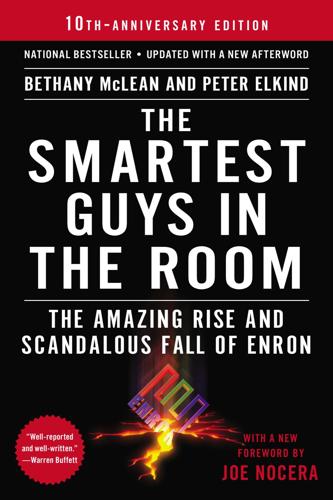
The Smartest Guys in the Room
by
Bethany McLean
Published 25 Nov 2013
Emergencies became increasingly common; the ISO wound up declaring 55 emergencies in 2000 and another 70 in 2001, compared with just 17 in 1998 and 1999 combined. Suddenly, utilities were bleeding money because they were forced to pay far more for their power than they could collect from customers, who were still paying regulated rates. In mid-June, as temperatures in the Bay Area topped 100 degrees, Pacific Gas & Electric was forced to declare rolling blackouts—the first since World War II in California—in part because a plant that it sold to Duke Energy (as the new rules required) was taken offline for maintenance. Entire neighborhoods saw their power shut off for an hour to two hours at a time—at which point their power was turned back on and another neighborhood went dark.
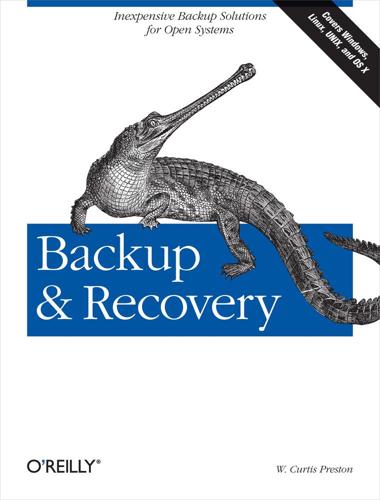
Backup & Recovery
by
W. Curtis Preston
Published 9 Feb 2009
However, what would happen if it stopped delivering electricity or gas for just a few minutes? It would be on the evening news, all its business customers would be angry at the impact to them, all the residential customers would have to reprogram their DVD players and microwaves, and the company could potentially cause a rolling blackout, similar to what happened in the U.S. Northeast in the early 2000s. (This happens in some parts of the world on a regular basis.) This means that the company’s ability to deliver power is the most critical business function it has—its core competency. Once you figure out what your IP and supporting systems are, and which ones are critical, you need to figure out where they reside and all of the resources required to use them.

Days of Fire: Bush and Cheney in the White House
by
Peter Baker
Published 21 Oct 2013
BY THE TIME Bush and Cheney took office, California was in the throes of a full-fledged energy crisis. Years of deregulation combined with a growing economy and market manipulation had caused prices to shoot up as demand increased. So in the first few months of the new administration, California utilities were forced to resort to rolling blackouts, turning out the lights in the nation’s largest and most important state. Against that backdrop, Cheney switched gears and agreed to head an energy policy task force. But he did not wait for its conclusions to undo what he saw as an ill-advised campaign pledge to fight climate change. Bush had promised to impose a cap on carbon emissions, but with the need for energy seemingly more pressing by the day, Cheney argued it was the wrong time to add to industry’s burden.

Caribbean Islands
by
Lonely Planet
Castro was excluded from the deal-making. The Wall Falls & the Special Period When the Eastern bloc collapsed in 1989, the equivalent of US$5 billion in annual trade and credits to Cuba vanished, forcing Castro to declare a five-year período especial (special period) austerity program, technically ongoing. Rationing and rolling blackouts were instituted and food was scarce. Cubans share their survivor stories of this time willingly. In August 1993 the US dollar was legalized to provide much-needed liquidity. Class differences reemerged as people with dollars gained access to goods and services not available in CUP (Cuban pesos); touts (known as jinteros , or jockeys) and prostitutes (jineteras) reappeared.

Frommer's California 2009
by
Matthew Poole
,
Harry Basch
,
Mark Hiss
and
Erika Lenkert
Published 2 Jan 2009
Then came thr ee out-of-the-blue sucker punches to California ’s r osy economy: (1) the rapid demise of many , if not most, of the dot-coms in the stock-mar ket slump (new websites, gleefully chr onicling the death throes of the fledgling enterprises, popped up to amuse the formerly envious); (2) an energy der egulation scheme gone awry, leaving irate r esidents with periodic rolling blackouts and escalating energy bills (never have so many taken such a sudden, CALIFORNIA IN DEPTH 28 C A L I F O R N I A I N P O P U L A R C U LT U R E : B O O K S , F I L M , T V & M U S I C 2 glorified “ the liv eliest, hear tiest community on our continent. ” I t was also the birthplace of J ack London, one of the best-known American writers, who wr ote several short stories of his y ounger days as an oyster pirate on the S an Francisco Bay, as w ell as Martin E den, Jack London ’s semiautobiographical account of his life along the Oakland shores.